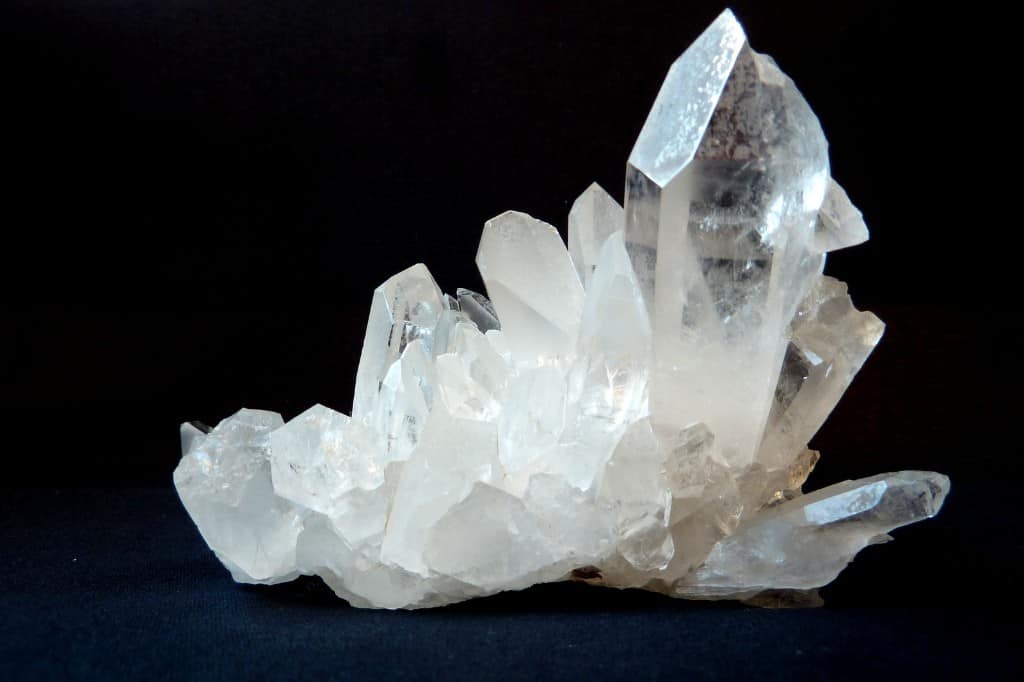There are many white things in nature. However, we have difficulty naming white animals in the wild. It is even more difficult to think of white foods.
White, the color of purity, is frequently found in nature, but we usually see it in conjunction with other colors. We can find many naturally white things like plants or animals in the wild.
This article will go over things that are white in nature. As a result, we’ll only discuss about things that are naturally white.
What Is Associated With White?
White, the color of snow, is associated with light innocence, goddess, purity, and goodness. It also represents illumination, spirituality, faith, and humility.
It is a color associated with new beginnings, sincerity, softness, and understanding.
White Things
White Light
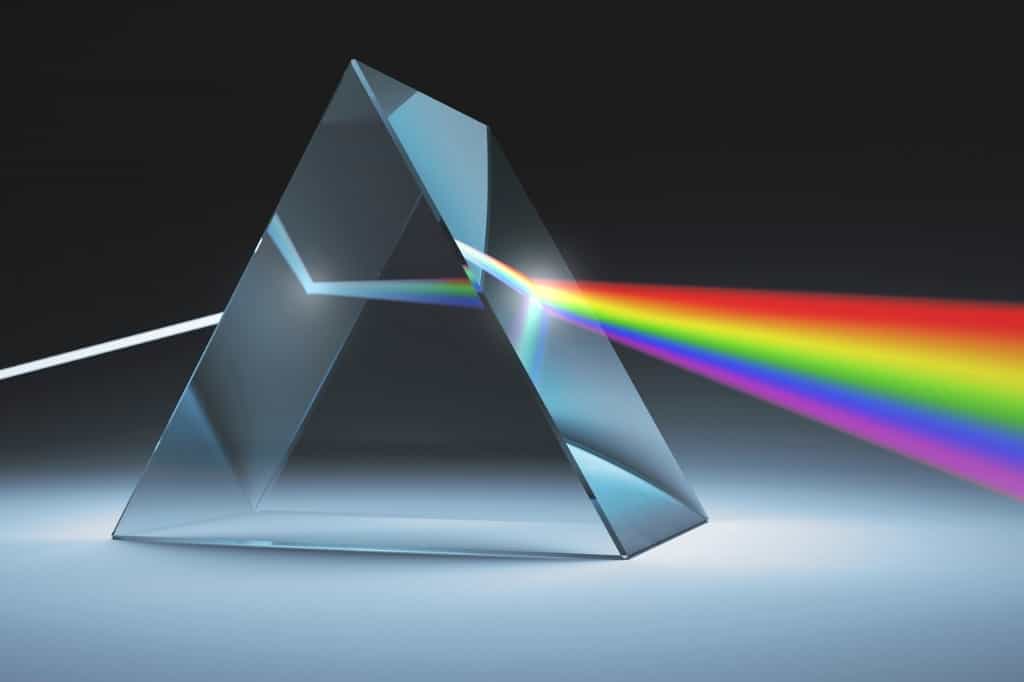
White Light: Although it appears white, white light is a mixture of all colors in equal amounts. Because white objects reflect all visible light wavelengths, they appear white.
Colored objects, unlike white objects, reflect only certain wavelengths and absorb the rest. Newton demonstrated in an experiment that passing white light through a prism produces the seven colors of the visible spectrum.
Glacier
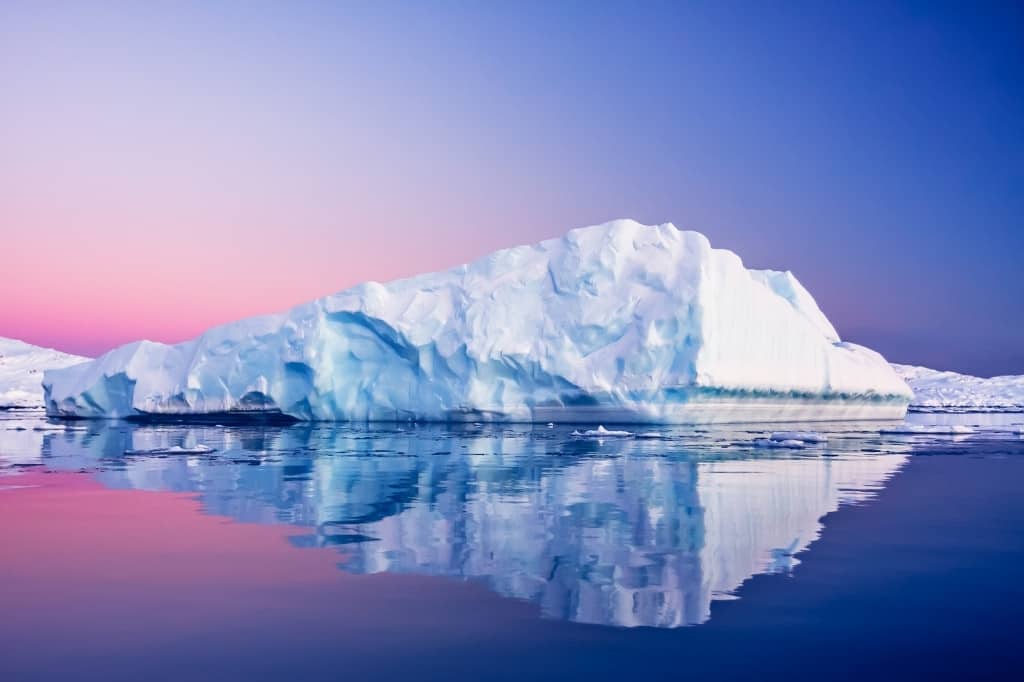
Glacier: A glacier is a massive mass of naturally formed ice that is an especially important natural structure for living things.
If it appears slightly blue, it is because the glacier traps air bubbles, which scatter all light wavelengths except blue.
Clouds

Clouds: Because clouds are formed from water vapor, which scatters sunlight, they are often white. As a result, the water droplets scatter all colors while the sunlight remains white.
Snow
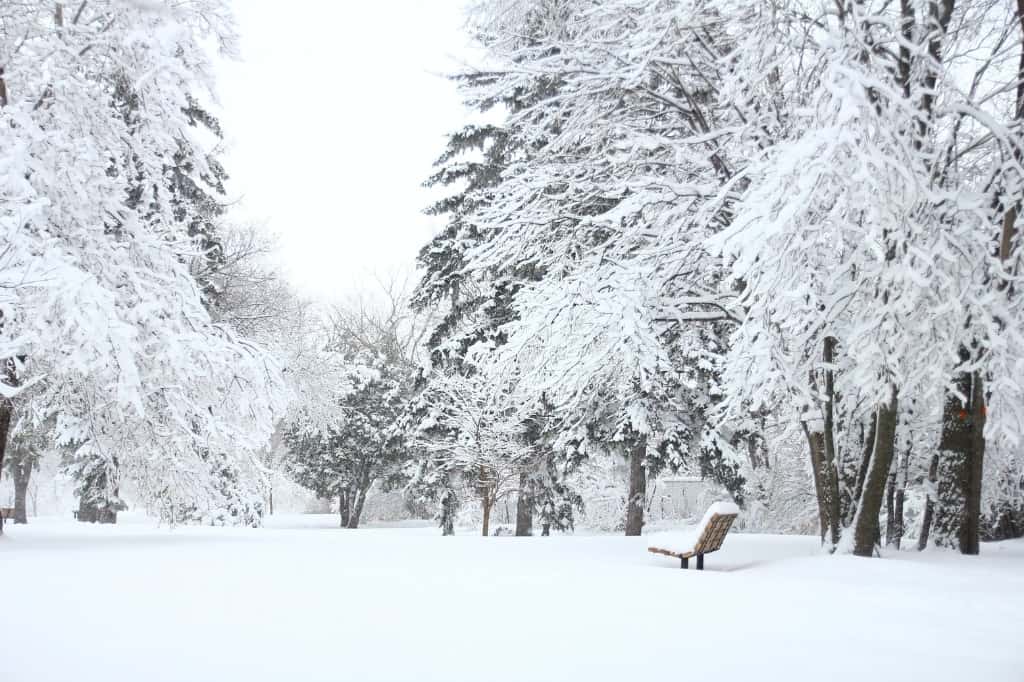
Snow: Light strikes snow crystals, scatters, and reflects off the ice crystals that make up snowflakes, giving snow its white color. As a result, the reflected light contains all the colors that appear white when combined.
In addition, snow has a strong white reflective effect due to air bubbles reflecting all wavelengths of light, giving it a brilliant white appearance.
White Pearls
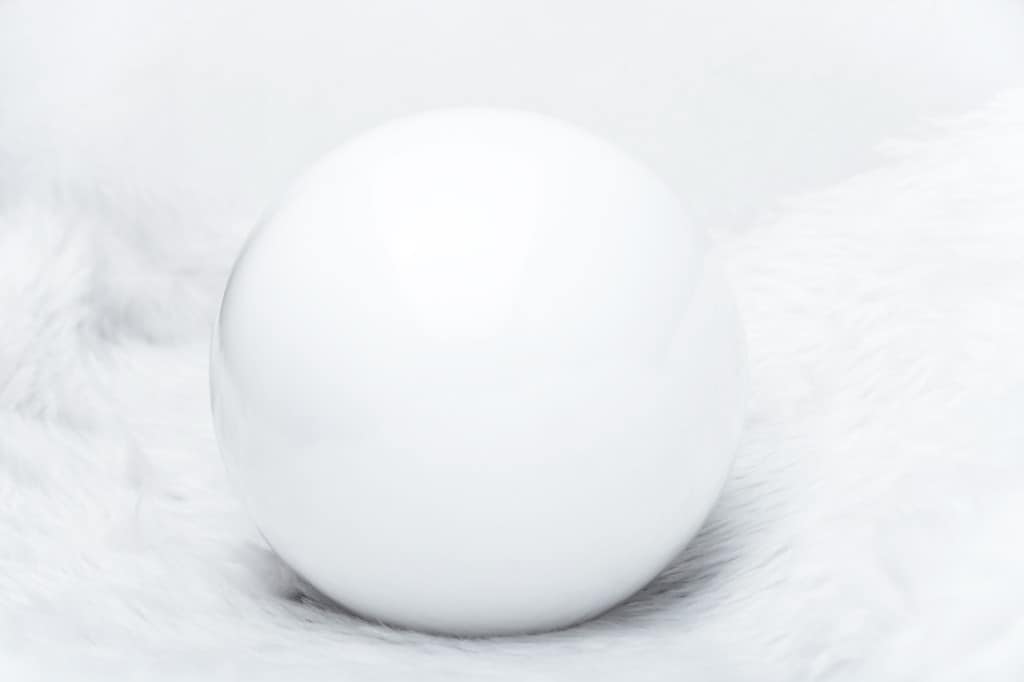
White Pearls: Natural gemstones, white pearls are produced by farming freshwater mussels on pearl farms. They are priced between $100 and $10,000. The white pearls are commonly regarded as a symbol of purity.
Bones

Bones: Blood cells and particular minerals in bones account for their white color. Calcium is also found in bones. Furthermore, X-rays make them appear white.
Teeth

Teeth: The enamel on teeth is made of calcium phosphate, a white rock mineral. This is why teeth are white.
White Eggs
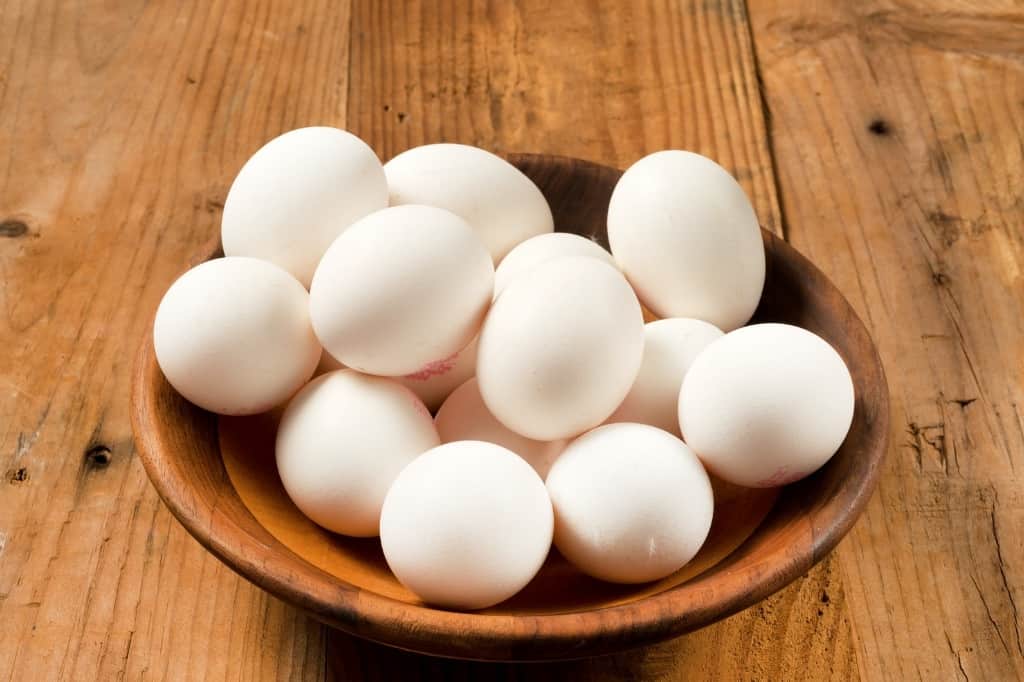
White Eggs: The color of the eggs is determined by the hen’s breed. White shell eggs are white because hens with white feathers lay them. Eggs are a good source of protein.
Whitecaps
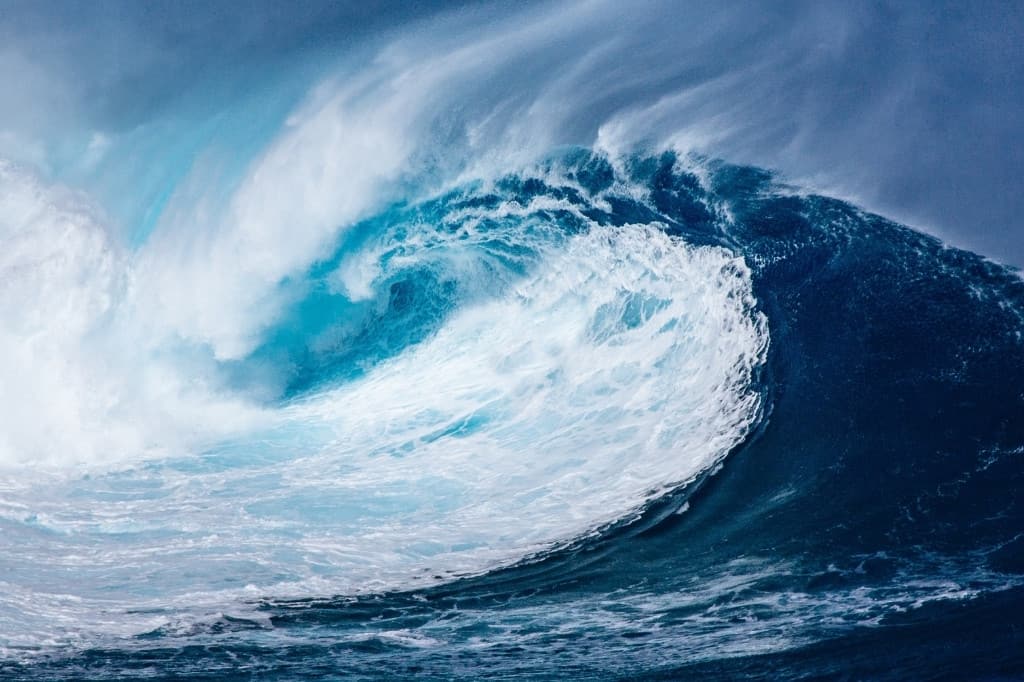
Whitecaps: Have you ever wondered why whitecaps are white even though sea and ocean water appear blue?
Whitecaps are white because they are made up of a large number of bubbles produced by a wave on the surface, and these bubbles scatter the light captured from the sun, making them appear white.
White Gemstones
White Opal
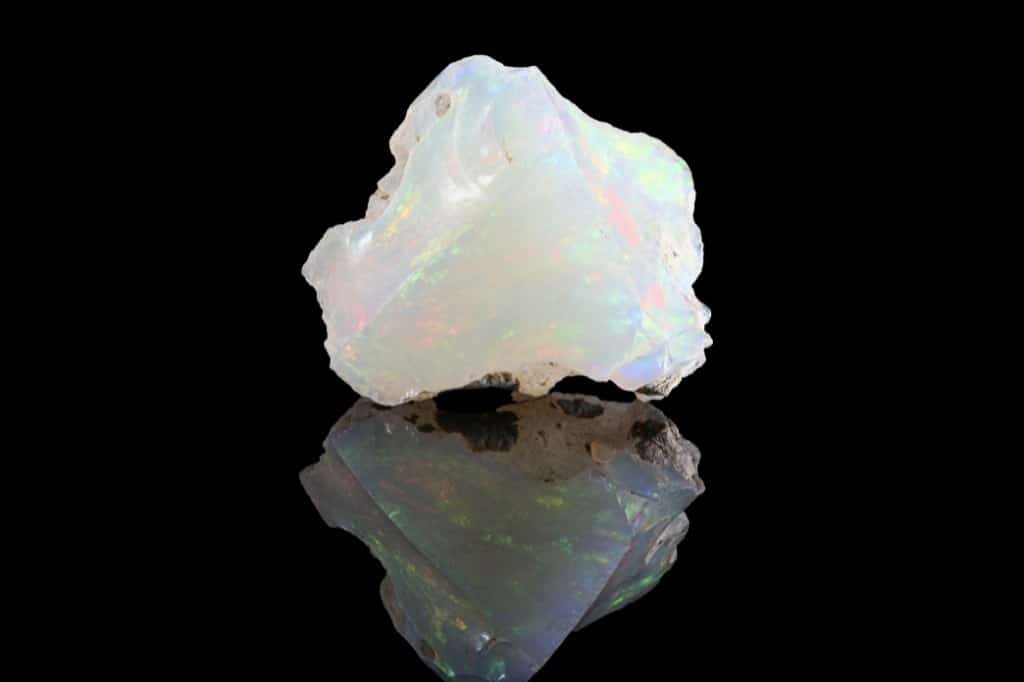
White Opal: A white opal gemstone is made of silica rather than glass or resin. The white opal is thought to be a magical gem that transmits clarity and purity.
Limestone
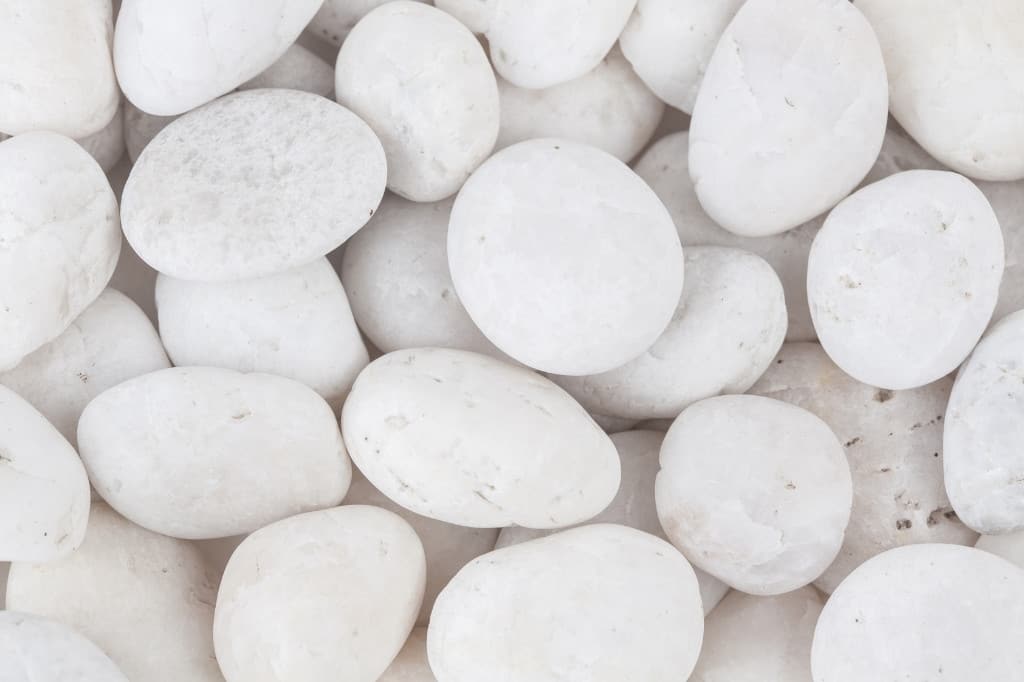
Limestone: A sedimentary rock composed of calcium and magnesium carbonates, limestone is primarily composed of calcite. This white gem becomes less soluble in water as the temperature rises.
White Quartz
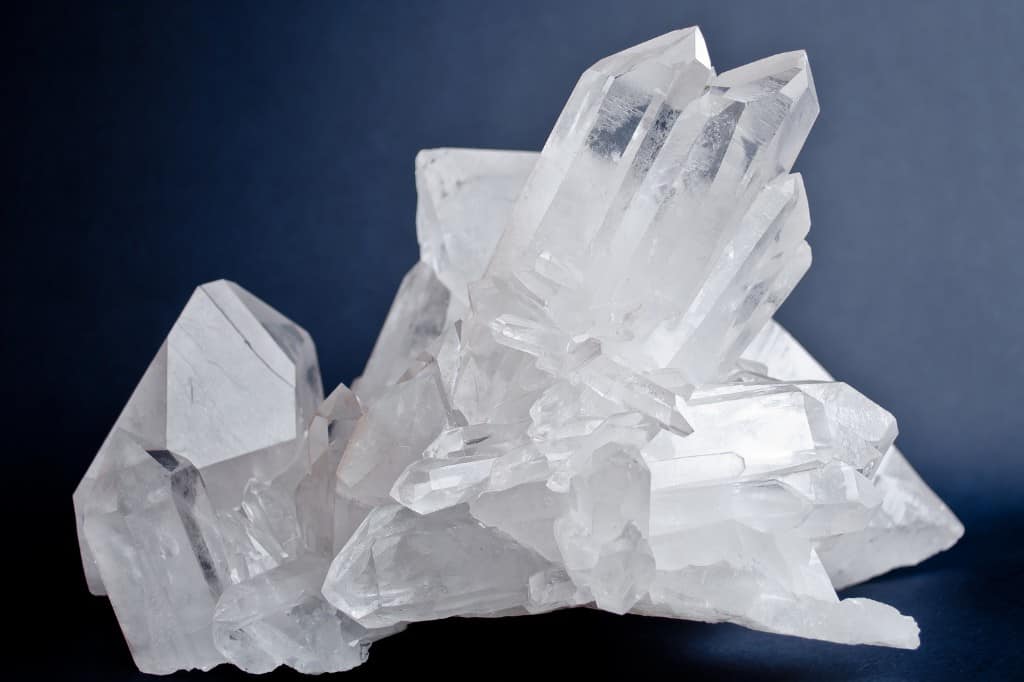
White Quartz: Quartz is composed of oxygen and silicon atoms that form three-sided pyramids. It is a stone that combines natural ground quartz with resins and pigments.
It is said to be a white gemstone with healing properties associated with the crown chakra.
Magnesite
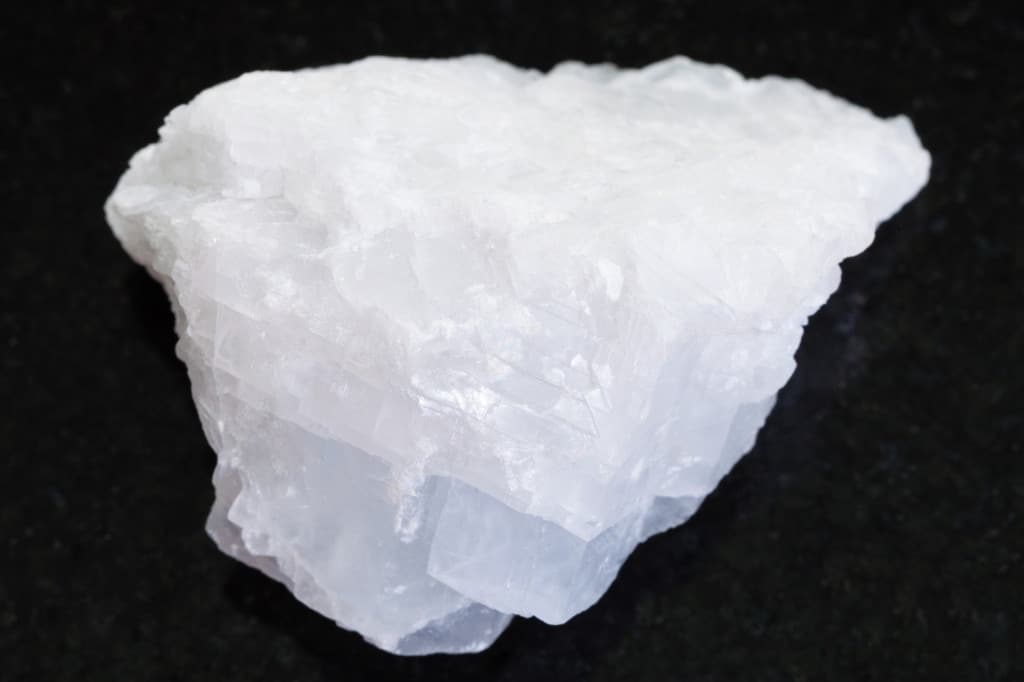
Magnesite: A member of the calcite group of carbonate minerals, magnesite is a good source of magnesium. This mineral was formed as a result of the alteration of magnesium-rich rocks.
Magnesite appears white when iron, manganese, calcium, and aluminum silicates are present.
Cacholong
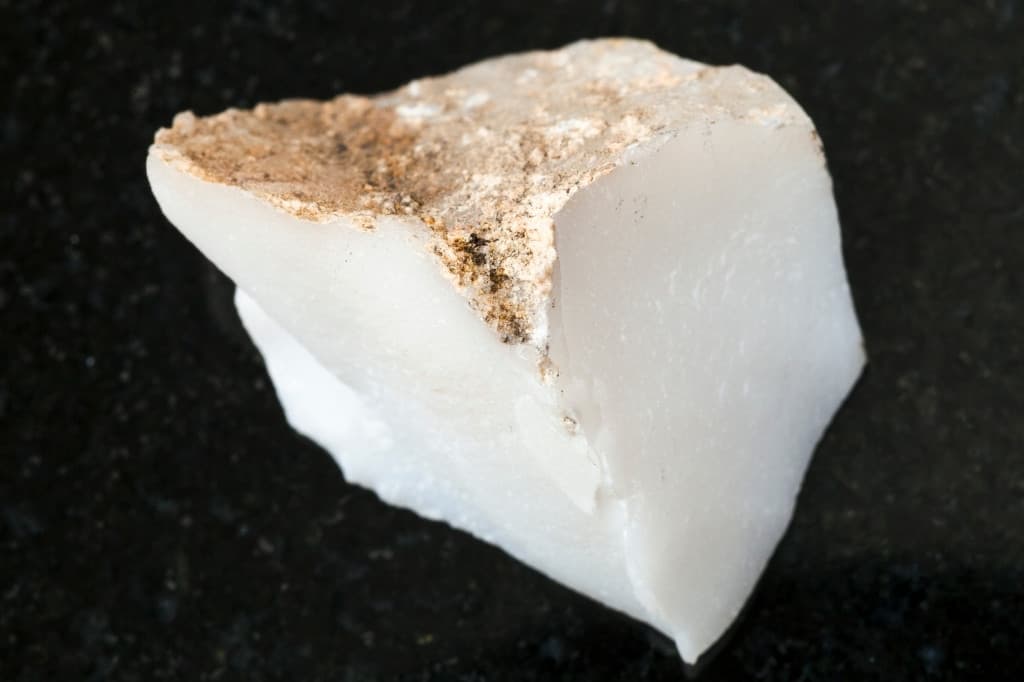
Cacholong: A milky white stone, cacholong is a type of opal, more specifically, a very porous gentle stone. It is considered a feminine stone.
Scolecite
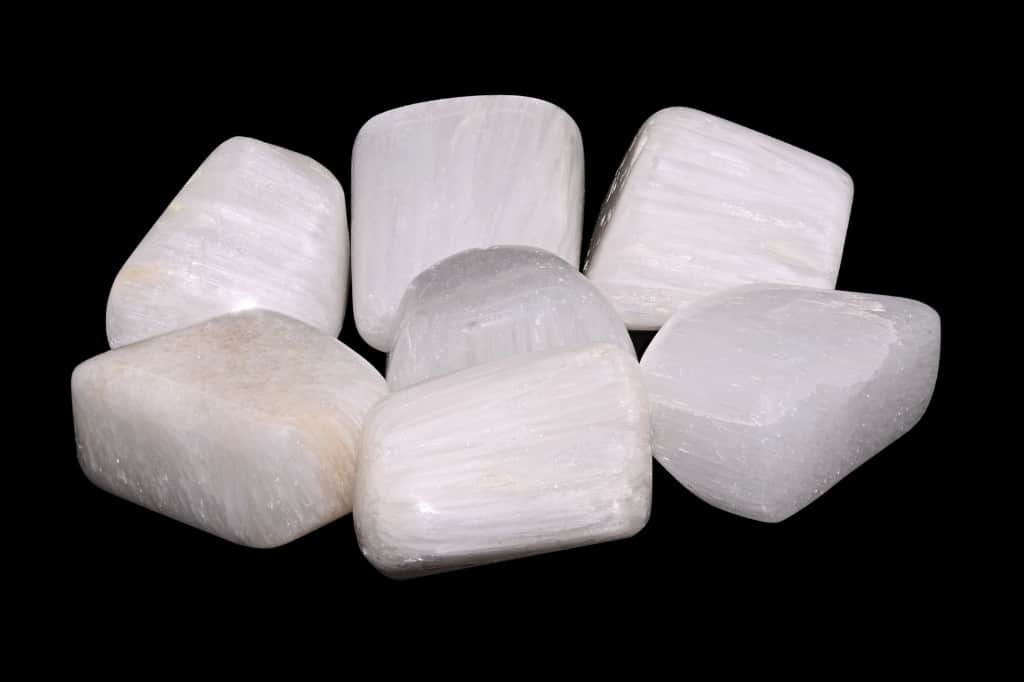
Scolecite: Scolecite is a calcium aluminum silicate member of the Zeolite family. It is found in igneous rocks and is primarily composed of calcium and water.
White Plants
White Rose
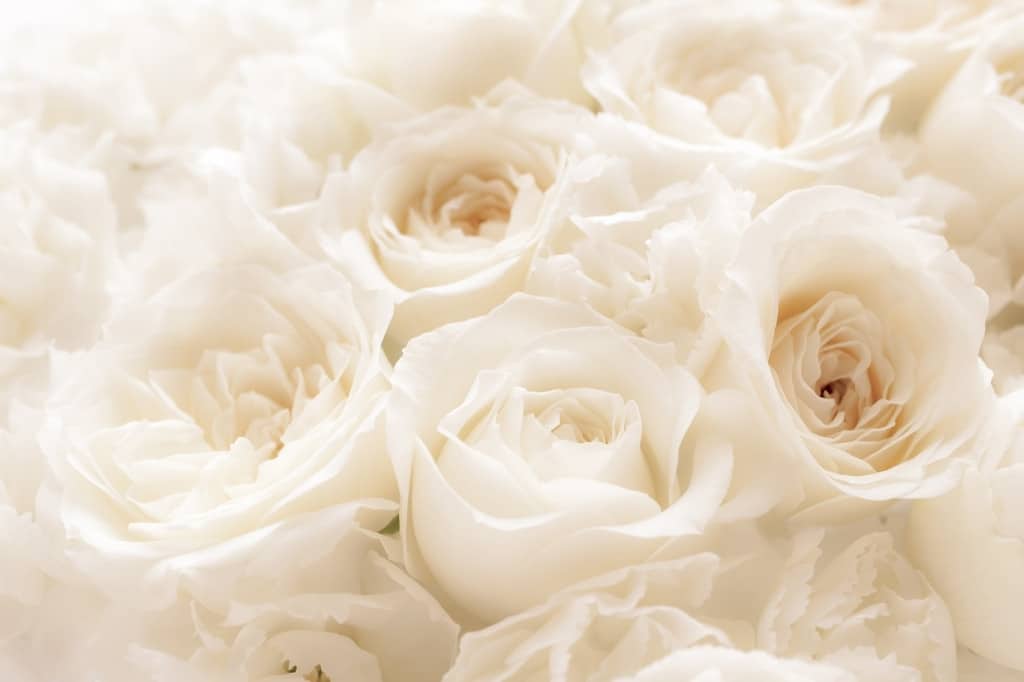
White Rose: Some pure white rose varieties include Iceberg, White Diamond, and White Perfumella. The white rose symbolizes purity, innocence, and young love.
They are one of the most beautiful white flowers and one of the most lovely white things.
Hydrangea
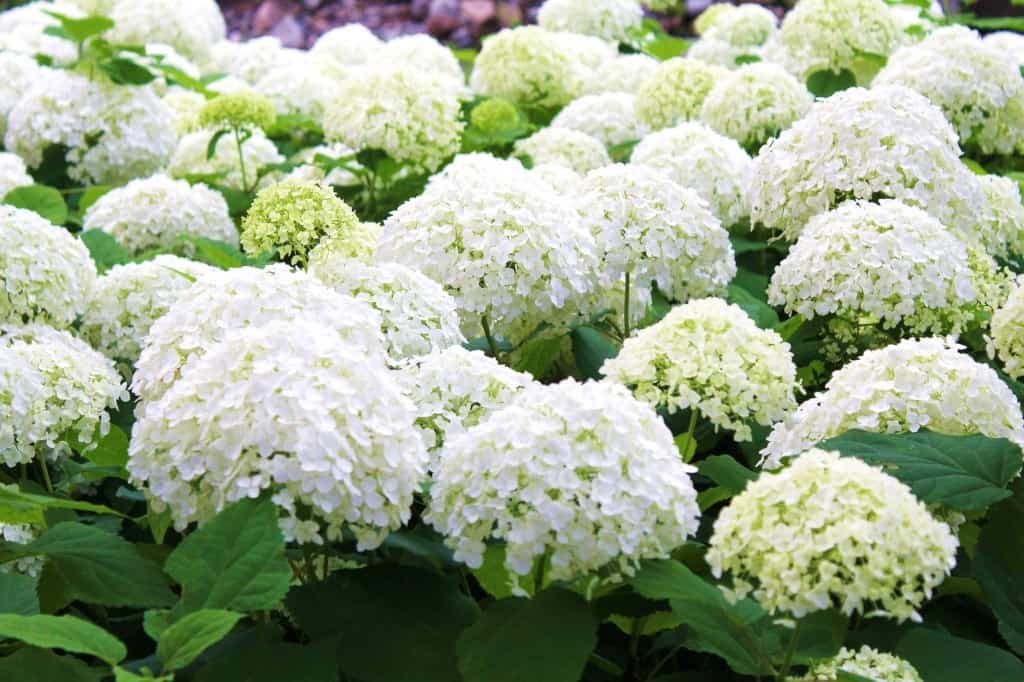
Hydrangea: While the pink and blue varieties are affected by soil alkalinity, white hydrangeas remain white. White hydrangeas include Bobo, Little Lime, Quickfire, and Sundae Fraise.
White Daffodil
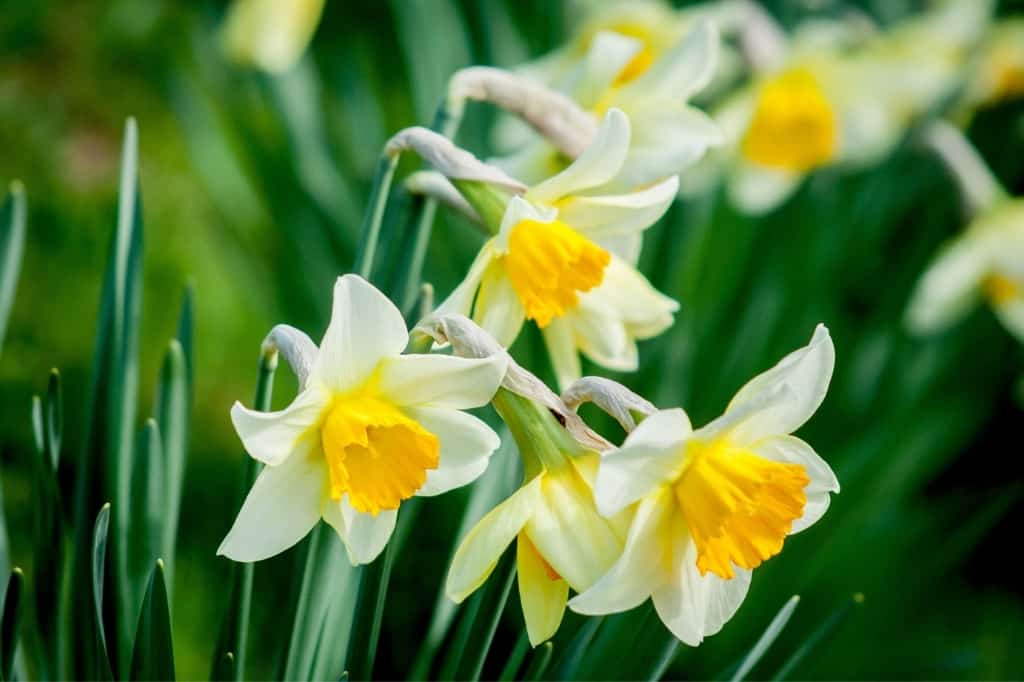
White Daffodil: White daffodils are hardy flowering perennial plants with a long blooming season.
Calla Lily
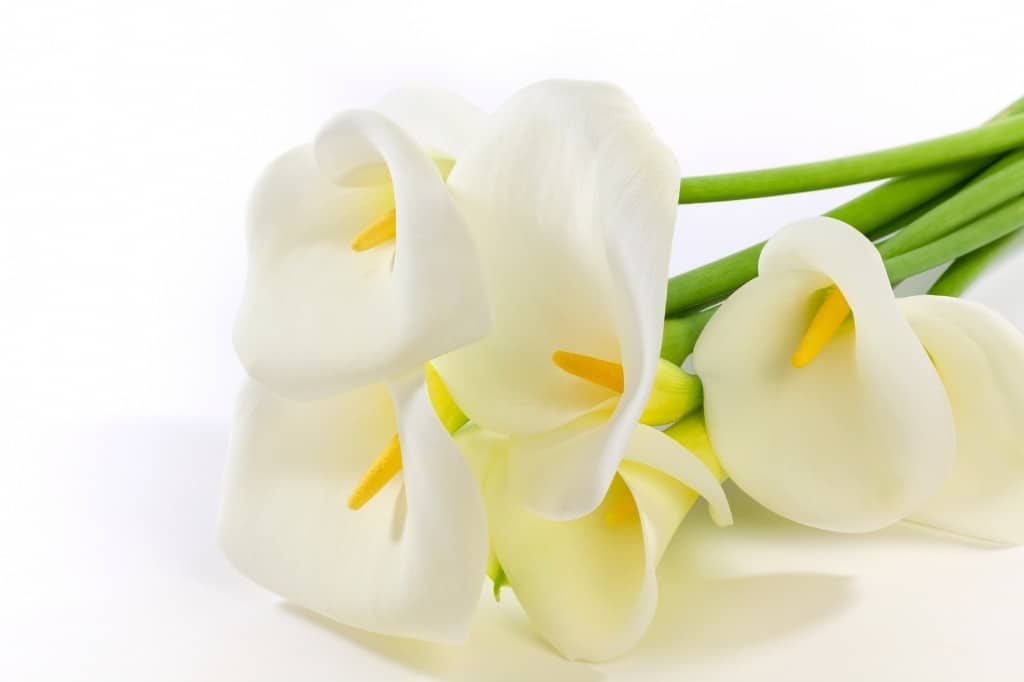
Calla Lily: White calla lily flowers bloom in the late spring for six to twelve weeks, symbolizing rebirth and resurrection.
White Tulip
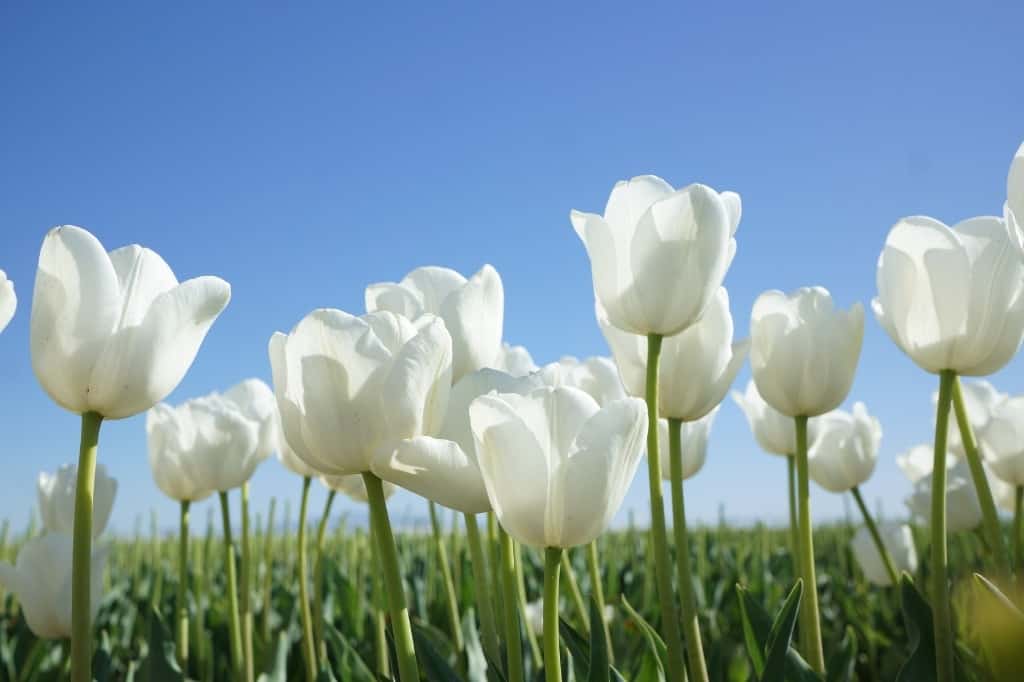
White Tulip: The white tulip is yet another lovely white thing in nature. White tulips, a symbol of respect, come in various colors ranging from pure white to pink, yellow, and green.
White Begonia
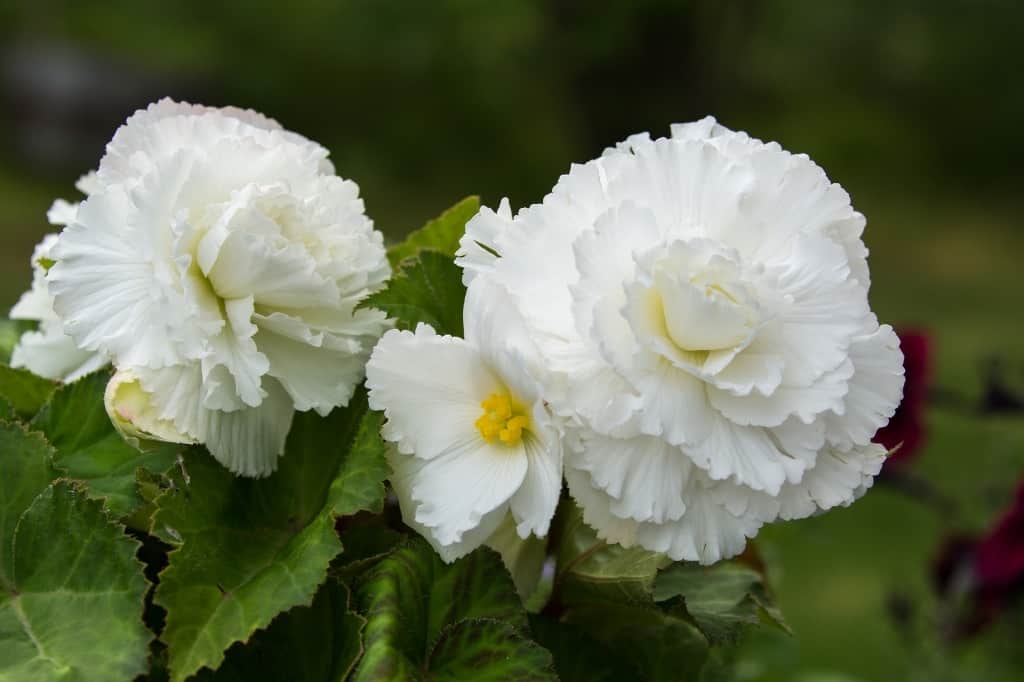
White Begonia: Grown similarly to marigolds and petunias, white begonias provide large, fully double white flowers. They bloom from the middle of summer to the beginning of winter.
White Anemone
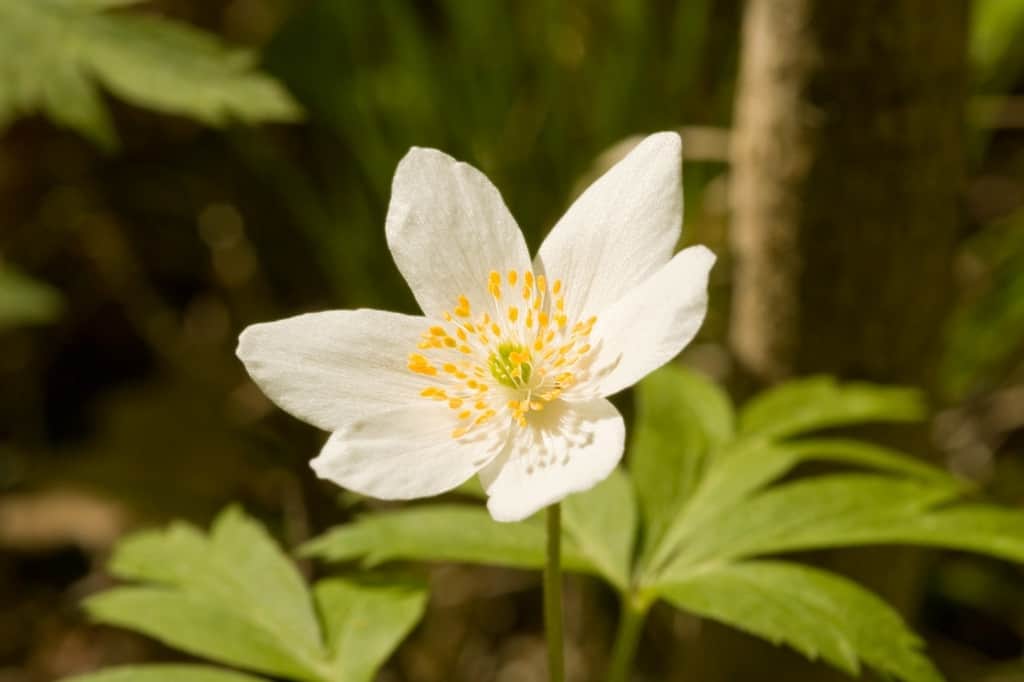
White Anemone: A flowering plant genus, white anemones have white petals and dark purple stems.
White Lilac
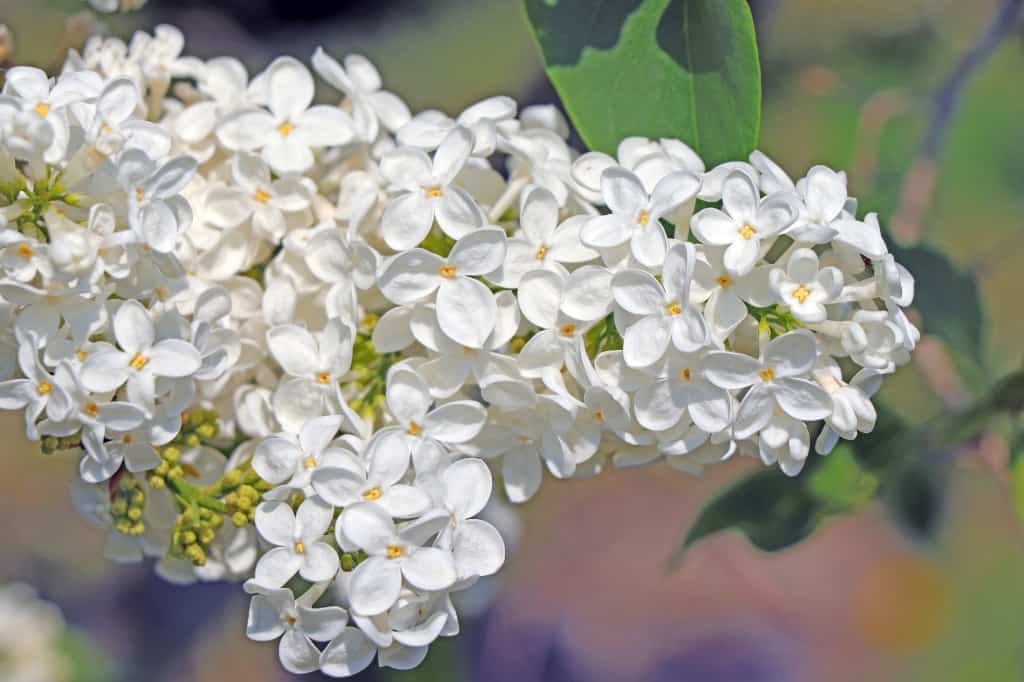
White Lilac: Lilacs are commonly associated with purple, but they also come in pink and white. Its white flowers provide a wonderful scent when they bloom.
Jasmine

Jasmine: A genus of shrubs and vines, jasmines are known for their strong fragrance. Jasmine flowers are typically white but can also be yellow, pink, or pink-white.
Moonflower
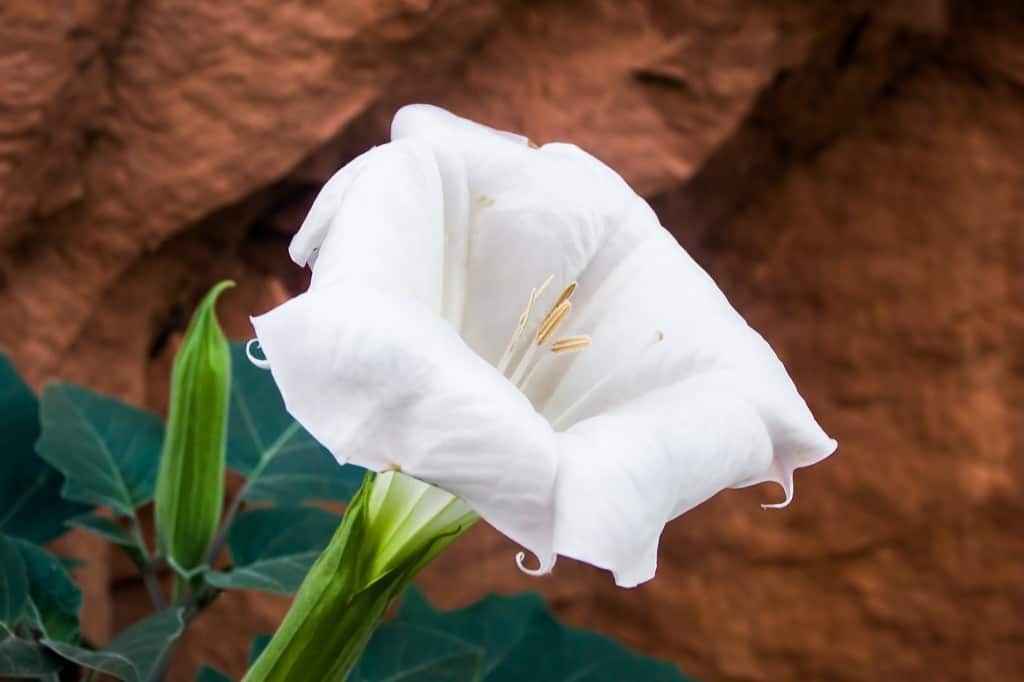
Moonflower: A tender perennial vine with white flowers and a strong fragrance, moonflowers can add beauty to any space.
White Wisteria
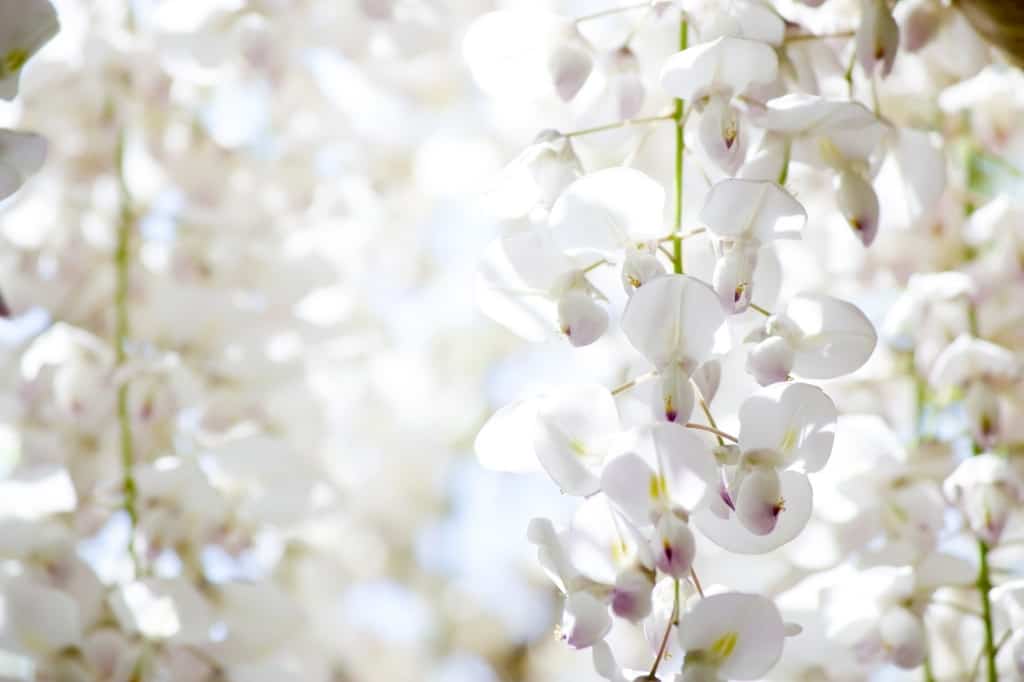
White Wisteria: Native to the West White Japanese Wisteria, wisteria produce flowers in various colors, including pure white. Sinensis Alba is the most common variety of white wisteria.
White Cosmos

White Cosmos: A herbaceous perennial plant, the cosmos produces daisy-like flowers in various colors, with white being one of the most beautiful.
White Marigolds
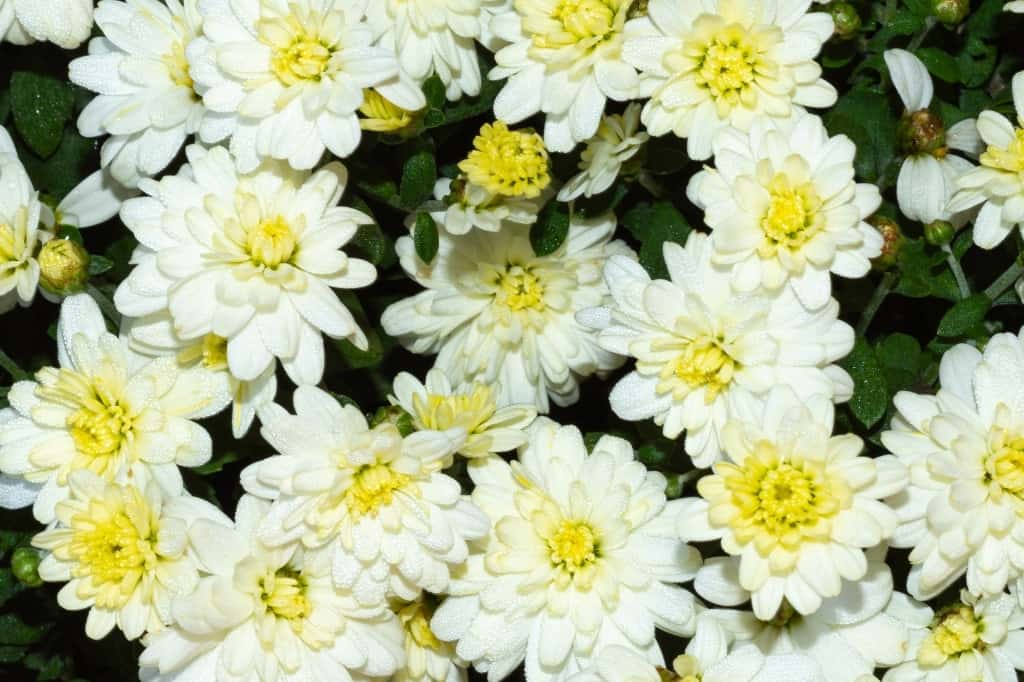
White Marigolds: Grown as annuals or perennials, white marigolds produce creamy-white garden flowers that can brighten our day.
White Hibiscus
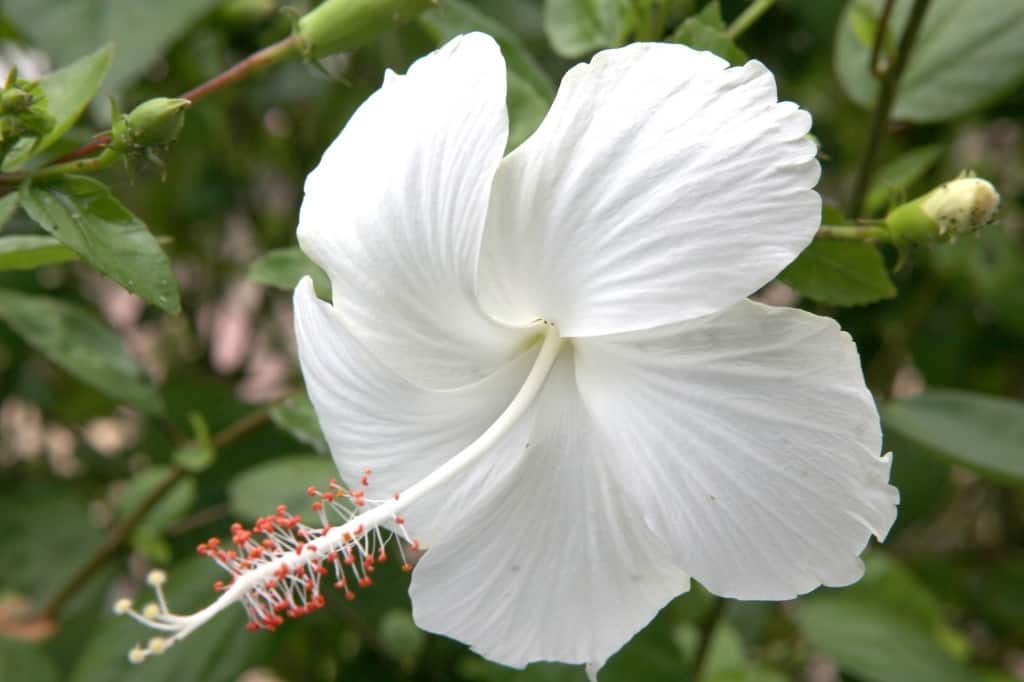
White Hibiscus: This annual or perennial plant is known for its white trumpet-shaped flowers. Give your garden a tropical flair.
White Foods
Rice

Rice: White rice is brown rice with the husk and bran content removed. White rice has the lowest nutritional value of all rice varieties.
It is, however, a good source of carbohydrates. It is the most widely consumed white food on the planet, as well as one of the most popular white things.
Milk

Milk: Milk is white because it is composed of water, fat, and protein, which combine to form micelles or tiny particles. When light strikes these micelles, it is scattered and refracted, making milk appear white.
In addition, milk contains calcium, phosphorus, and potassium, as well as vitamins B and D.
White Cow Cheese
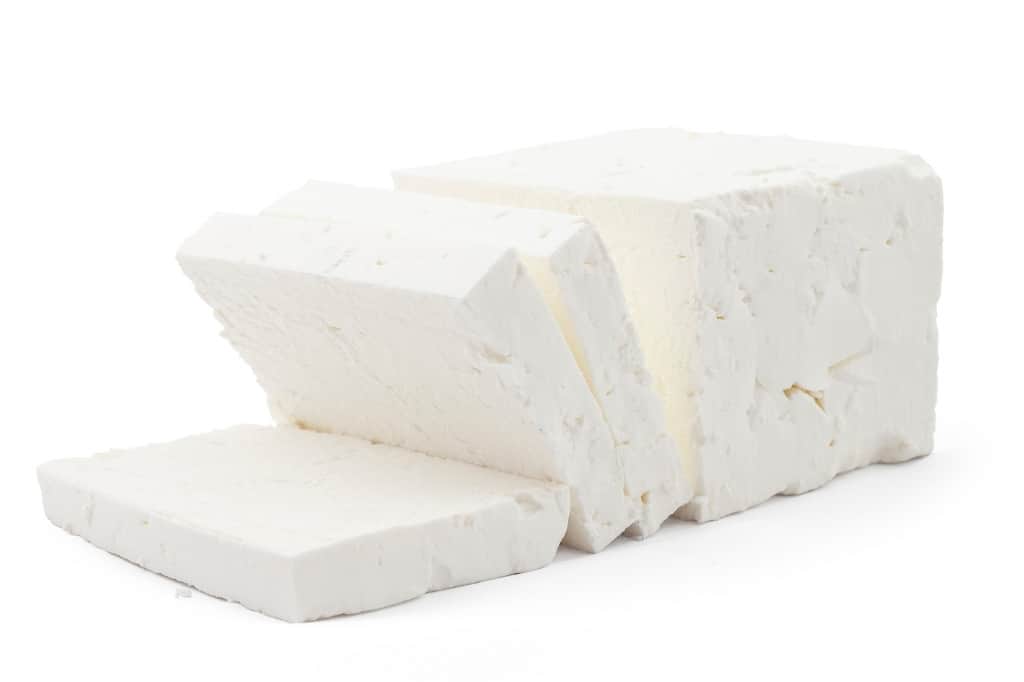
White Cow Cheese: Made from white cow milk, white cow cheese is one of the whitest foods available.
White Beans
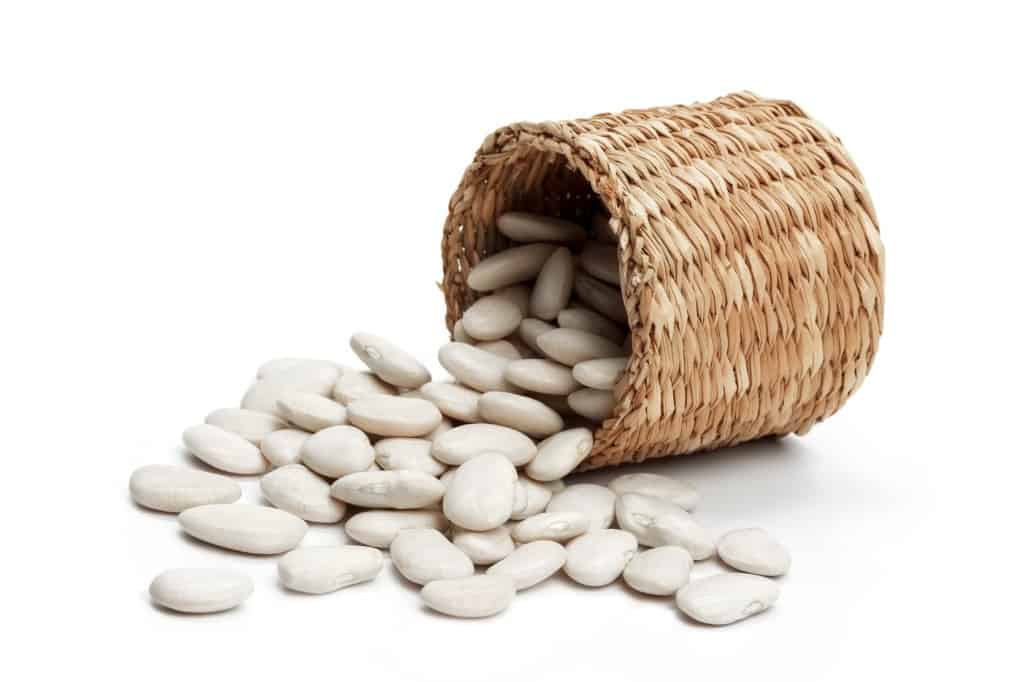
White Beans: A type of white casing vegetable also known as beans, white beans are high in fiber and protein. They are among the most nutritious white foods.
Yogurt

Yogurt: Yogurt is white because it is produced through the bacterial fermentation of milk. Yogurt is high in protein, calcium, and potassium.
Wheat Flour
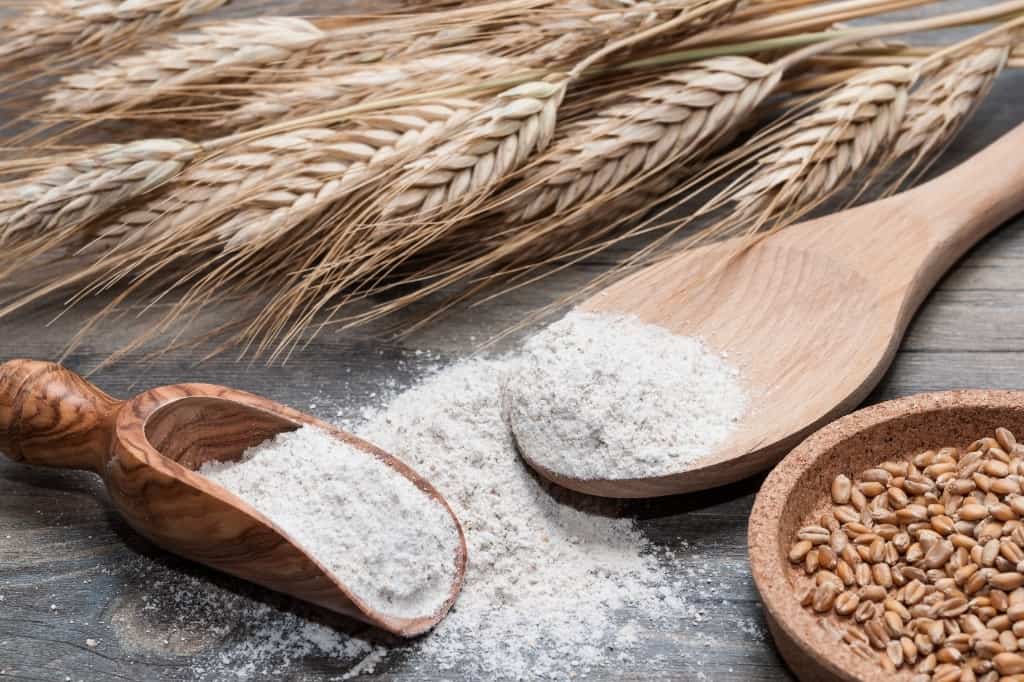
Wheat Flour: Typically used in baking, wheat flour is a powder created by grinding wheat.
Mushrooms

Mushrooms: These white things are native to Eurasia and North America and are known as champignon mushrooms.
White mushrooms have a high protein content while being low in calories.
Coconut Meat
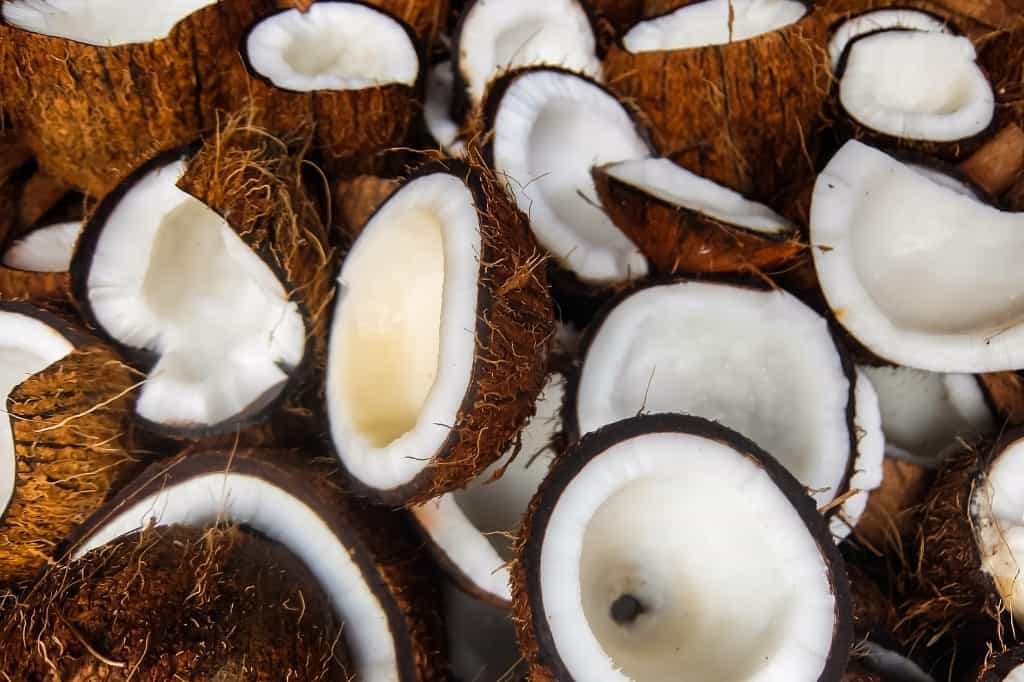
Coconut Meat: Coconut meat is the white fleshy inside of a coconut and is one of the whitest things.
It has a sweet flavor and is consumed as a snack and as coconut flakes in baked goods.
Garden Asparagus
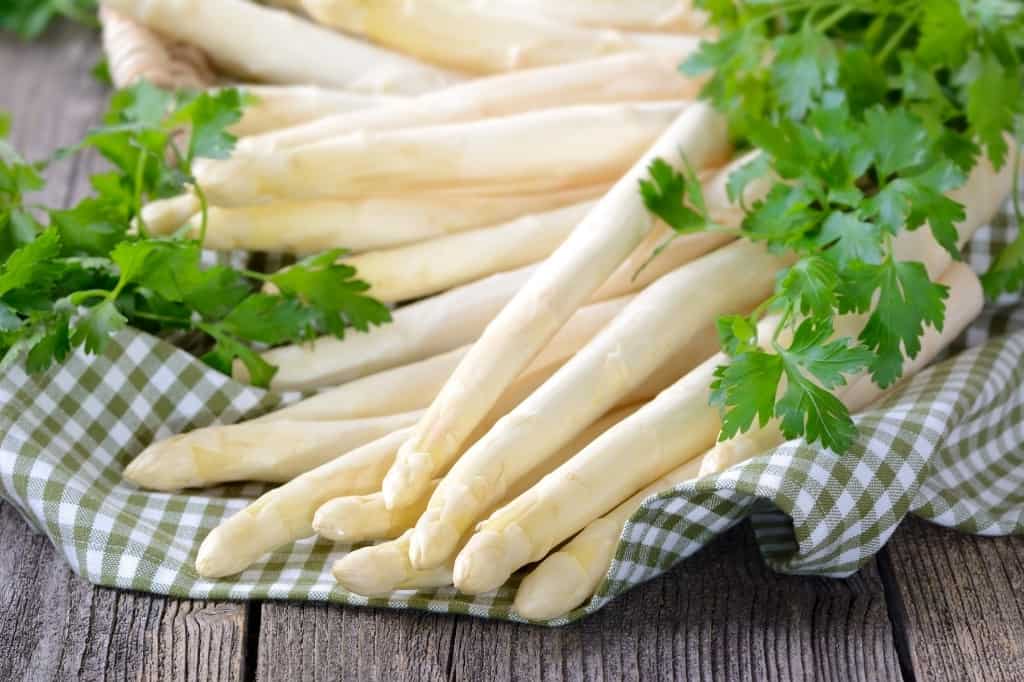
Garden Asparagus: Asparagus is a delicious spring vegetable that is high in nutrients (fiber, folate, vitamins A and C) but low in calories.
Because white asparagus is grown in the dark, photosynthesis and the production of chlorophyll, the green pigment, are inhibited. White asparagus is considered a delicacy in Europe.
Cauliflower
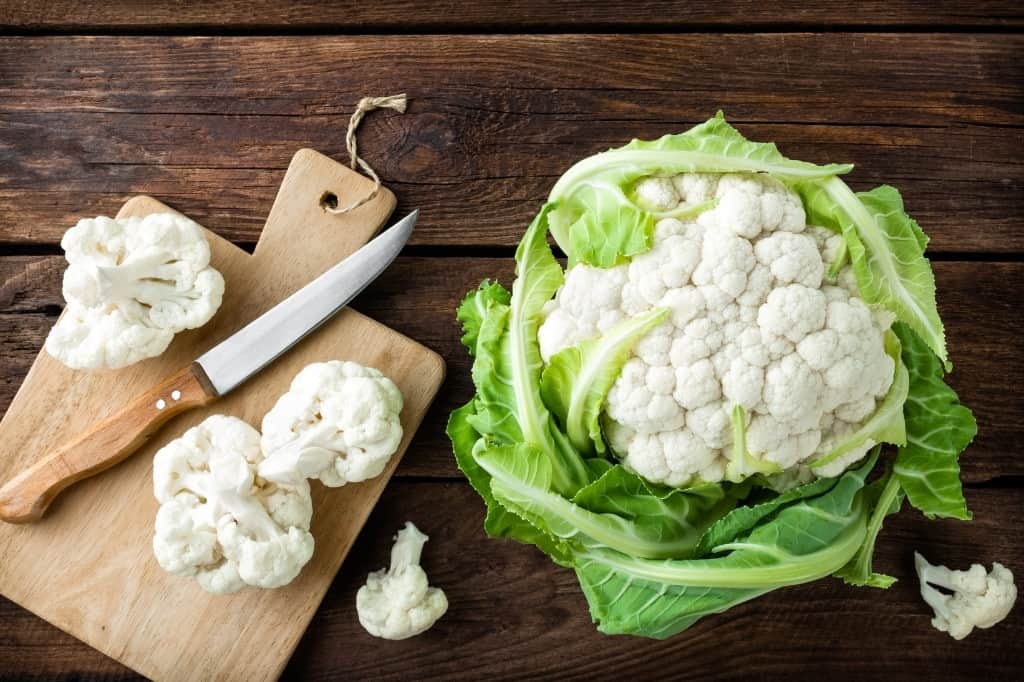
Cauliflower: A white vegetable related to broccoli and cabbage high in antioxidants and phytonutrients. It is one of the most nutritious white vegetables.
Cauliflower retains its white color thanks to the protective leaves that grow around the head.
Garlic

Garlic: The well-known garlic has antibacterial and antiviral properties and is used as a food and spice. Garlic cloves are typically white in color.
Garlic is a common ingredient on Mediterranean menus.
Onion
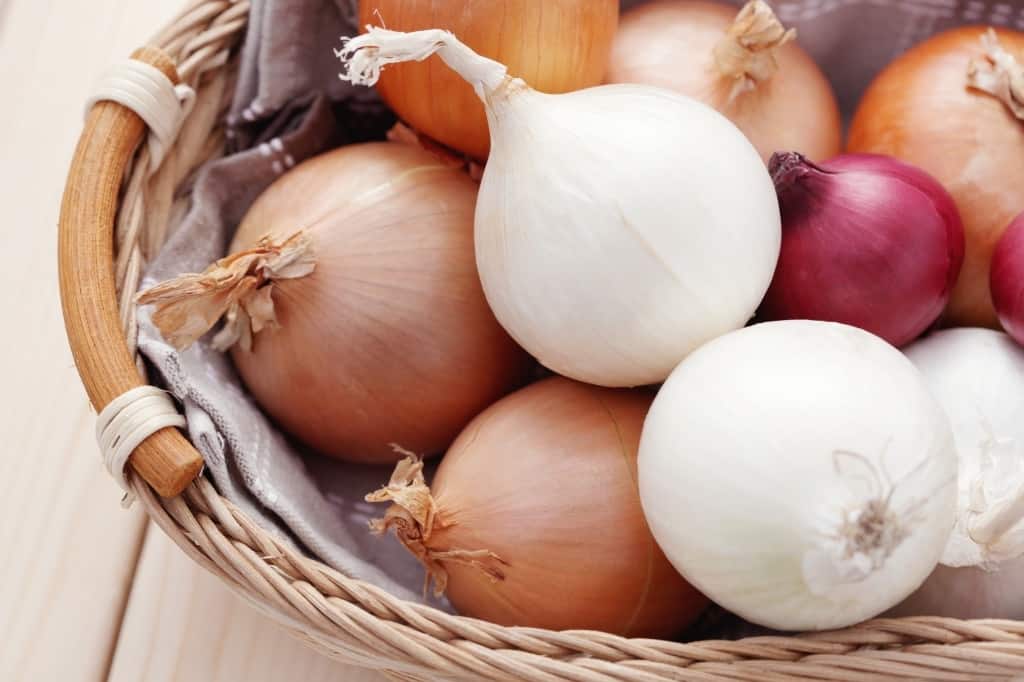
Onion: One of the most popular vegetables, onions come in various shapes and sizes. One of them is the white onion, which is white due to the lack of pigment.
Sugar

Sugar: Sugar is initially brown in color due to molasses in sugar cane. Centrifugation separates this from the sugar crystals. As a result, the sugar turns white.
White Animals
Samoyed
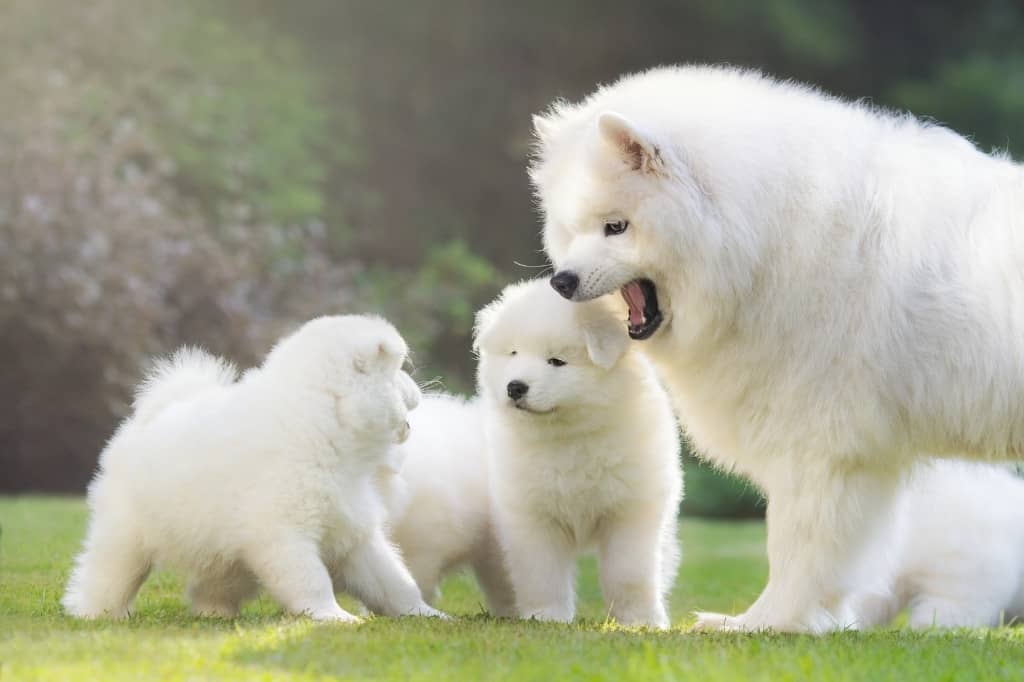
Samoyed: A herding dog breed, Samoyed dogs are known for their white coats. White medium-sized samoyed dogs prefer cold climates and are friendly, sociable, and playful.
They were named after the Samoyedic people of Siberia. Samoyeds are all white because they have e/e recessive red, and the red allele prevents the production of eumelanin.
As a result, Samoyed dogs are white because they are only colored by pheomelanin. Along with white Pomeranians, they are among the most beautiful white pets.
White Persian Cat
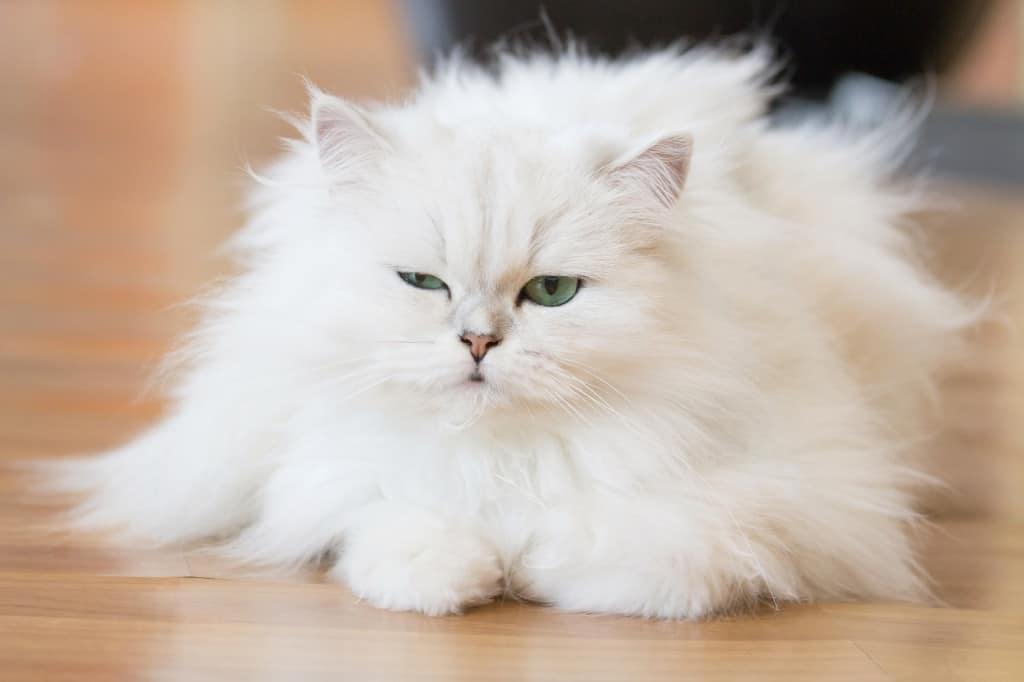
White Persian Cat: White Persian cats are a long-haired cat breed known for their round face and short muzzle.
These cats come in various colors, including cream, blue, red, and black, but white cats are the most popular. Persian cats’ white color is caused by a lack of melanin production in the body.
Maltese

Maltese: This is a dwarf canine breed related to the Bichon Bolognese. Their name is derived from the name of the Maltese island.
This breed is thought to have evolved from the desire to create a smaller, white Westminster. They are well-known for their white coat.
They are white due to a lack of pigment. Maltese dogs are affectionate, playful, and intelligent.
White Peacock
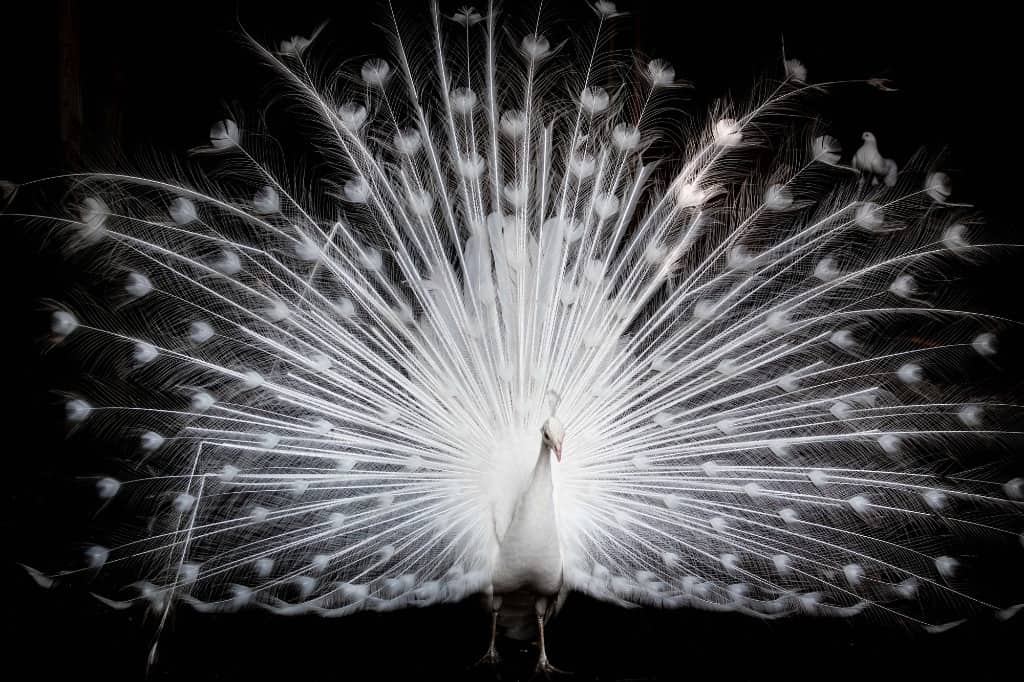
White Peacock: White peacocks do exist. The white color is caused by leucism, a color abnormality or skin condition that causes a lack of pigments in their plumage. They are one of the most beautiful white birds.
Arabian Oryx
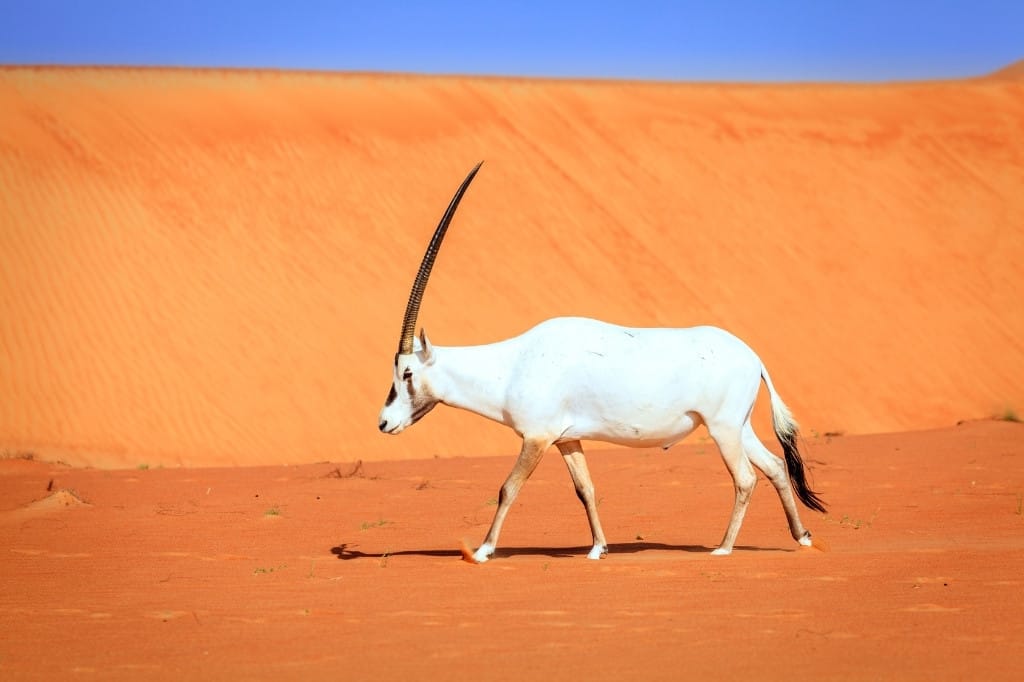
Arabian Oryx: This medium-sized antelope inhabits the Saudi Arabian sand deserts.
They can go for long periods without drinking because they are adapted to dry climates. Instead, they consume melons and succulent bulbs for hydration. There are approximately 1000 individuals left in the wild.
Ivory Gull
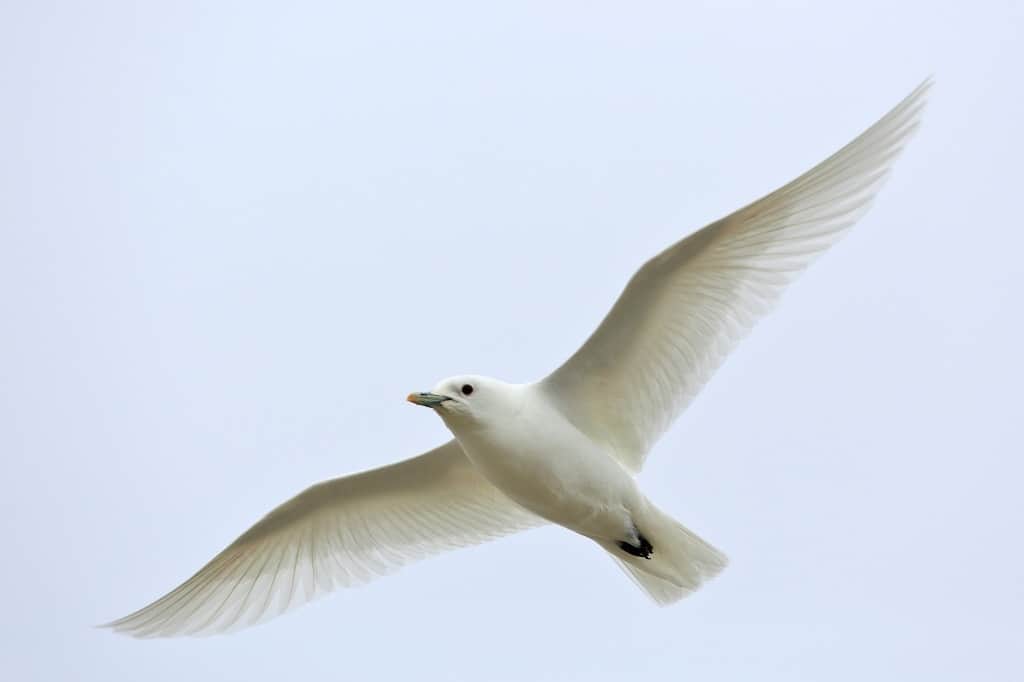
Ivory Gull: A small gull, the ivory gull is an endangered species due to climate change, illegal hunting, and pollutant dumping in wintering areas.
Polar Bear

Polar Bear: Native to the Arctic Circle, the polar bear is the largest land mammals. It is probably the most powerful white animal and can swim for days on end.
Arctic Wolf

Arctic Wolf: A medium-sized wolf, the Arctic wolf is also referred to as a white wolf or a polar wolf. Their wild population is estimated to be around 200,000.
They are indigenous to Greenland and North America’s Arctic regions. Arctic wolves are white because they have adapted to icy conditions, which allows them to blend in with snow-covered landscapes.
Arctic Fox
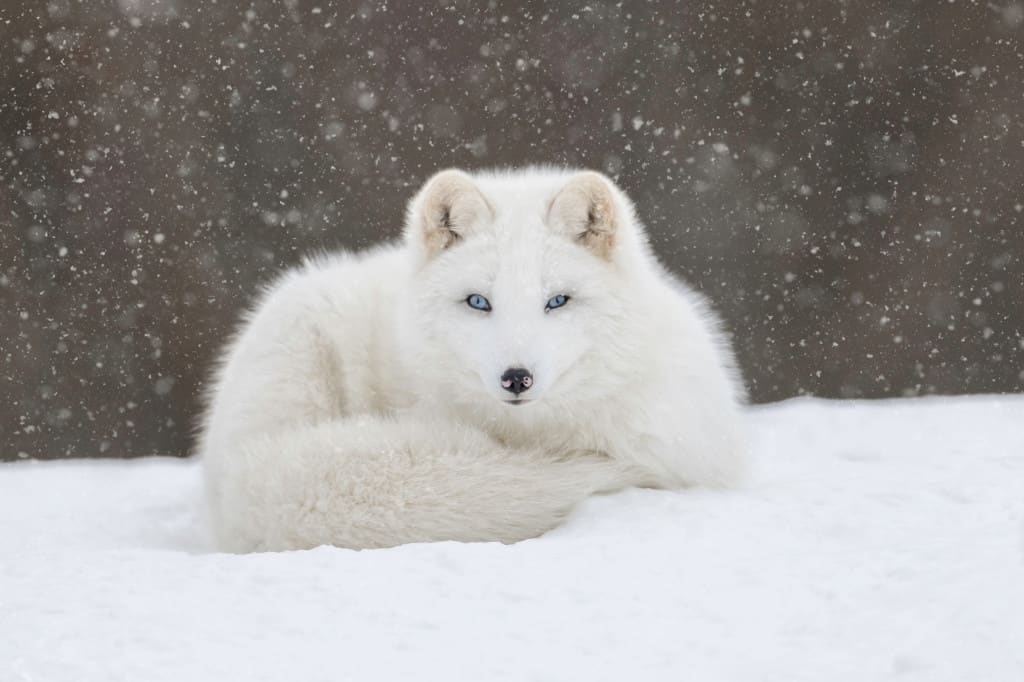
Arctic Fox: Arctic foxes are adapted to icy conditions. Because of their white fur, they can blend in with their surroundings. It’s one of the cutest things that are white.
Skin Condition
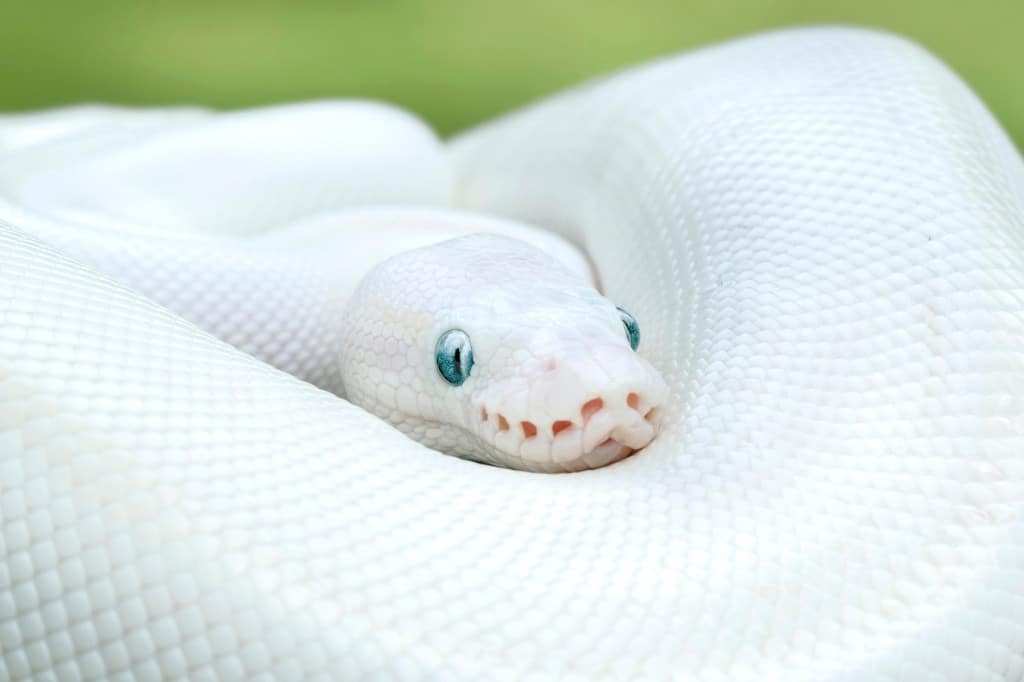
Skin Condition: Leucism is a color abnormality that affects all fauna, including mammals, birds, reptiles, amphibians, and fish.
Leucistic animals are white, but they can produce pigment. As a result, it is critical not to confuse leucism with albinism. Albinos, or animals with albinism, are incapable of producing melanin pigments.
White Tern
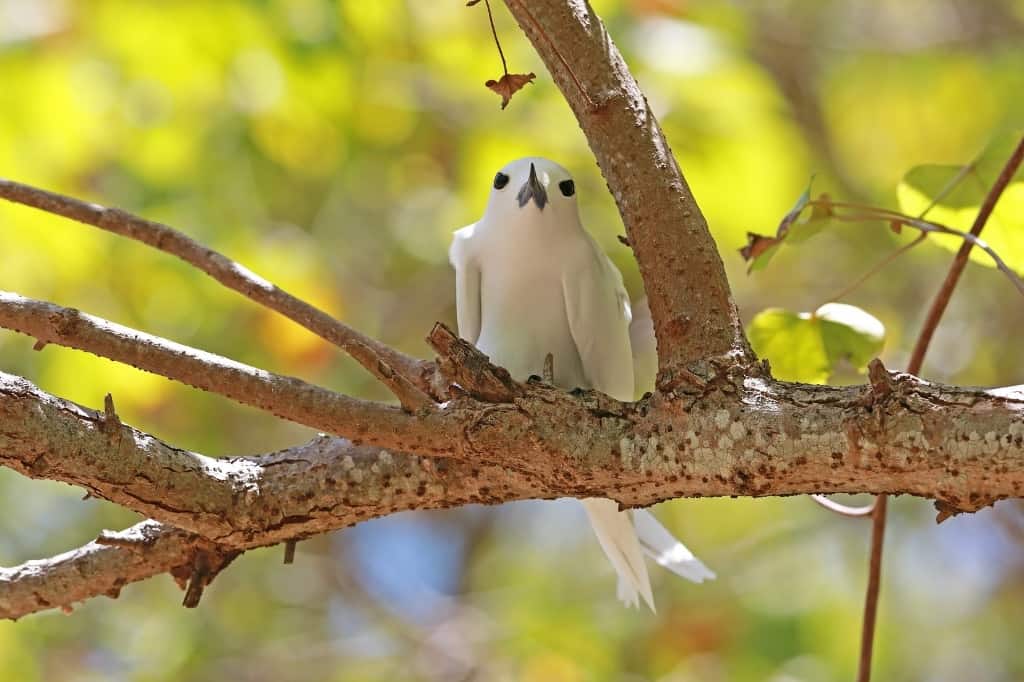
White Tern: A small seabird native to tropical areas around the oceans, the white tern, is prized for its all-white plumage. It is one of the most lovely white birds.
White Pigeon
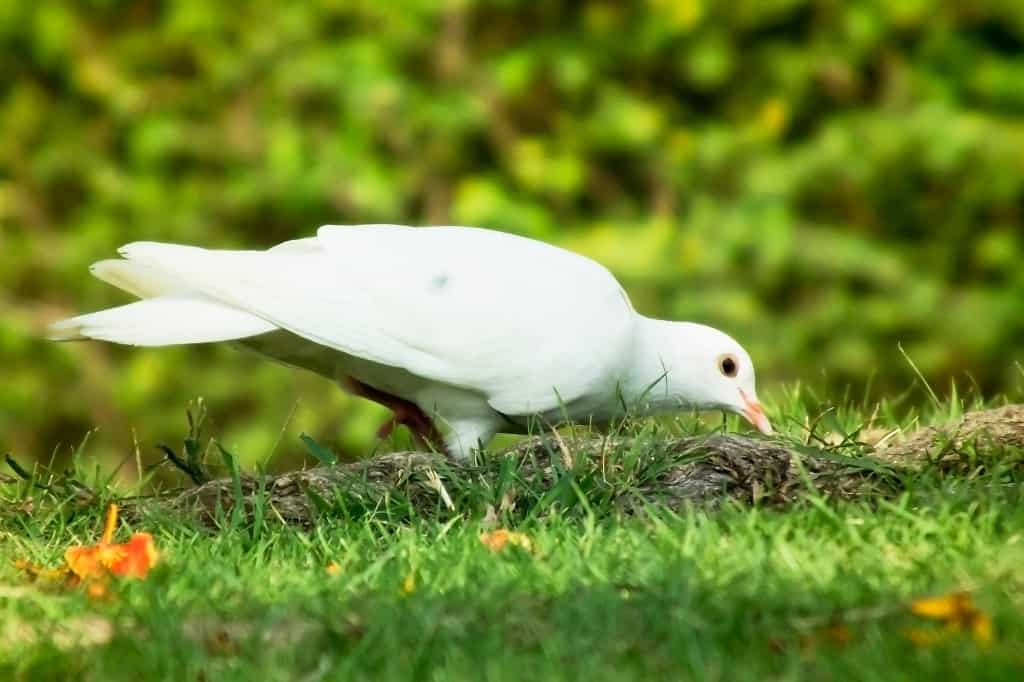
White Pigeon: White pigeons are thought to be one of the first species that humans domesticated. White pigeons are white due to albinism, a color abnormality in which they do not produce melanin pigments.
Panda
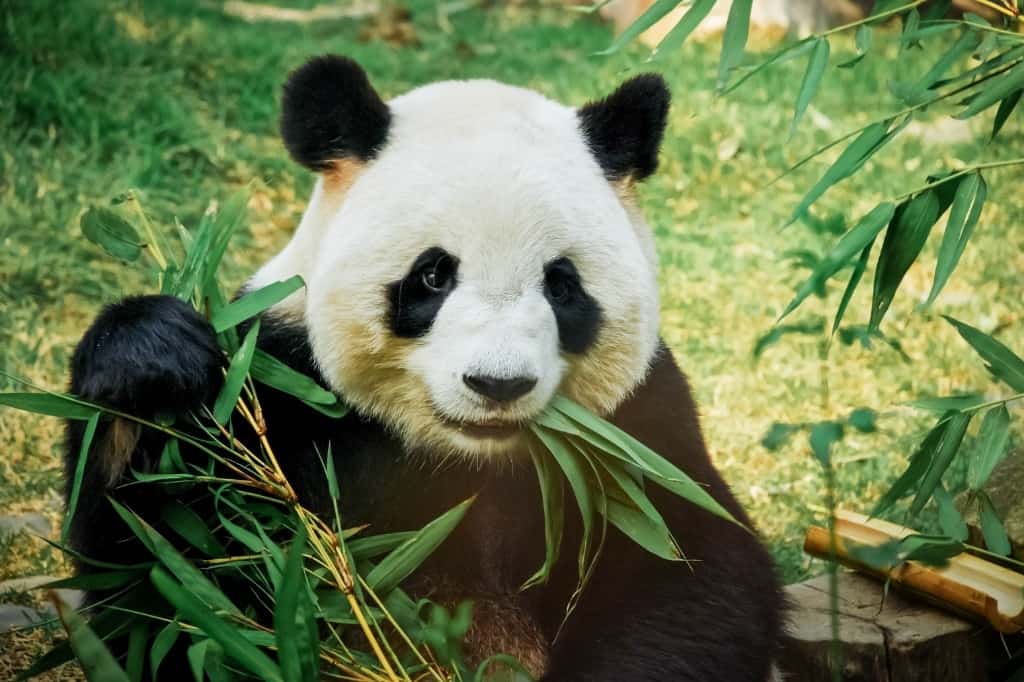
Panda: Panda bears are the cutest black and white things in nature and are adored by everyone. They are also known as giant pandas and spend most of their time eating bamboo.
American Pekin
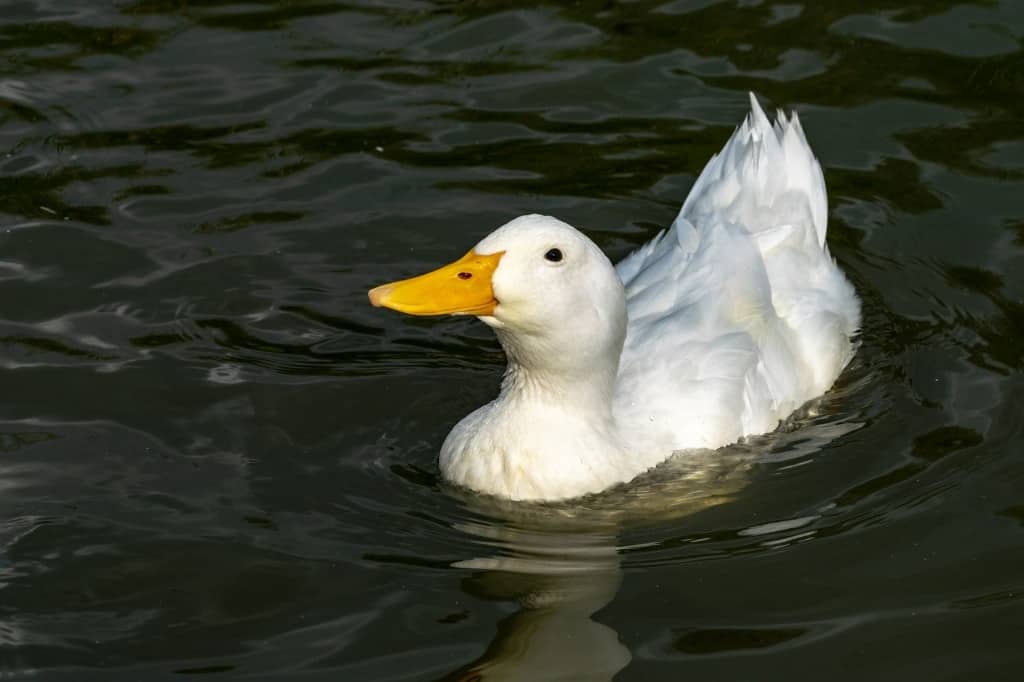
American Pekin: Also known as the White Pekin, the American Pekin is a very friendly breed of domestic duck.
The ducklings are yellow at first, but as they grow older, the yellow fades to creamy white. This color change is caused by the same factor that causes people’s hair to turn white.
White Squirrel
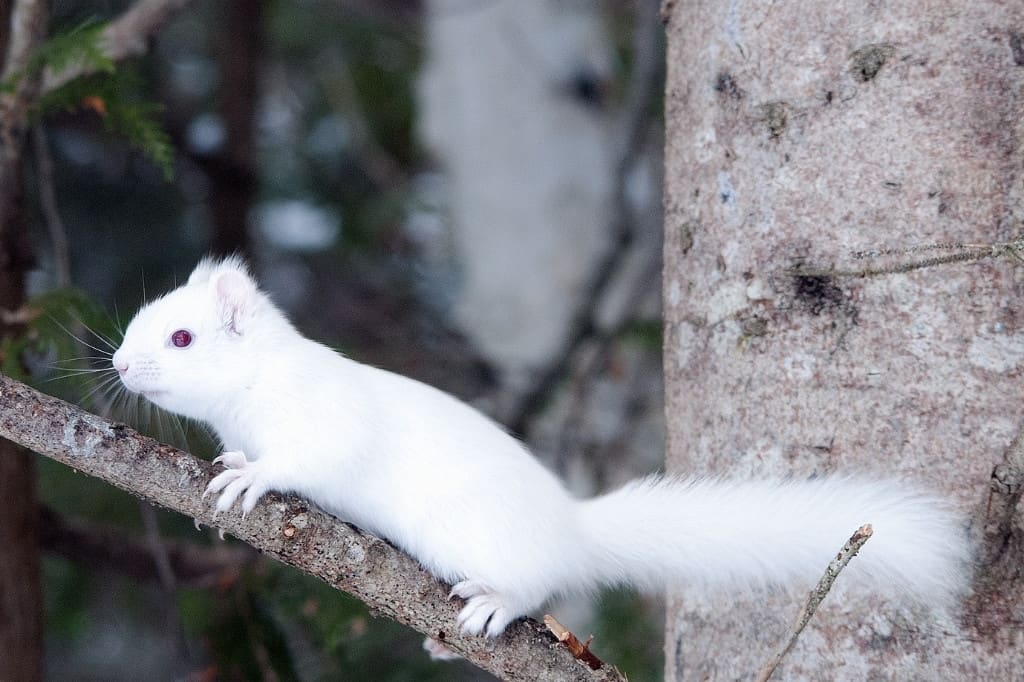
White Squirrel: Albinism is a genetic mutation that prevents white squirrels from producing melanin pigments. However, white squirrels are extremely rare.
Bali Myna
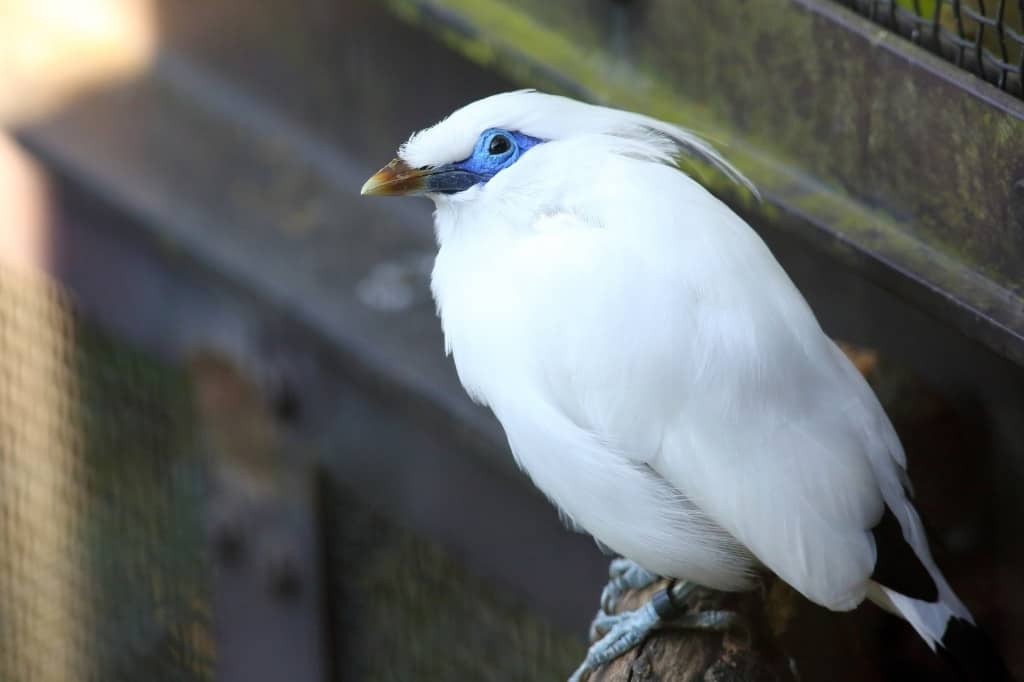
Bali Myna: Also known as the Bali Starling, the Bali myna is an endangered medium-sized stocky myna. It is estimated that only about 100 individuals are left in the wild.
White plumage and blue skin around the eyes distinguish Bali mynas.
Snowy Owl
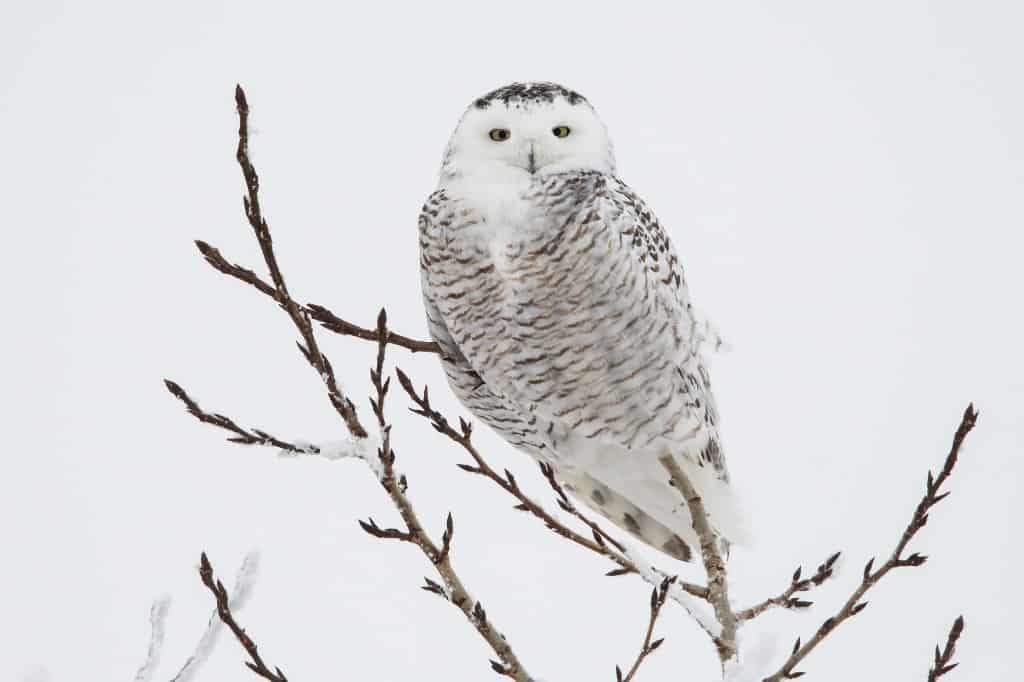
Snowy Owl: The snowy owl, also known as the white owl, is a large snowy owl native to North America’s Arctic regions.
There are approximately 30,000 snowy owls left in the world.
Snowy owls are unique in that they are diurnal, unlike the other owls.
Harp Seal
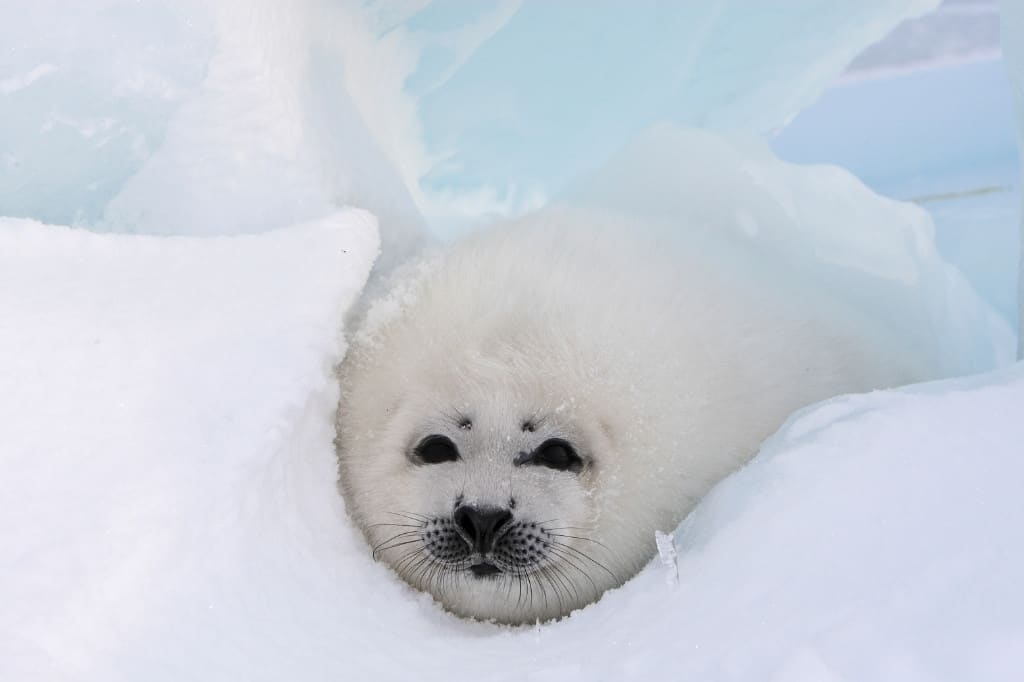
Harp Seal: Native to the northern Atlantic and Arctic Oceans, the harp seal is a species of the genus Phoca. They can hunt fish at depths of up to 300 feet (90 m).
They can also dive to 1,000 feet (300 meters) and stay submerged for up to 15 minutes. Puppies of harp seals are born on the ice.
They are distinguished by their white coats. The white coat is a climatic adaptation that aids sunlight absorption and keeps them warm until they develop blubber.
Winter White Dwarf Hamster
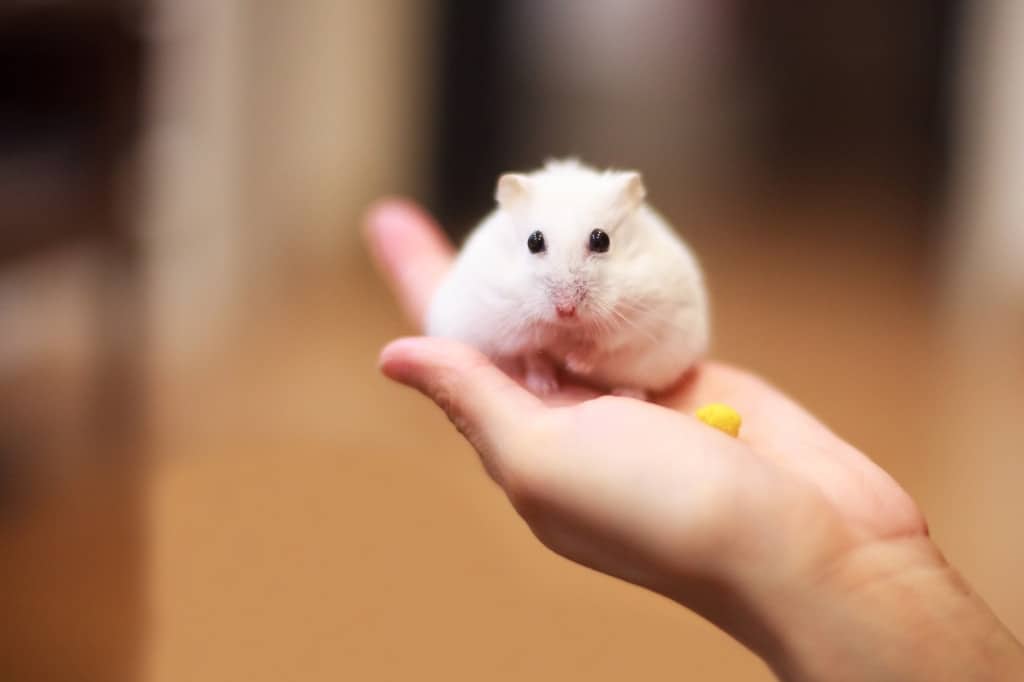
Winter White Dwarf Hamster: Also known as Russian dwarf hamsters, the winter white dark hamsters are popular pets in North America and Europe.
As the name suggests, the fur of the white dwarf hamster turns white during the winter season. They are grey-brown for the rest of the year.
Dwarf Hotot Rabbit
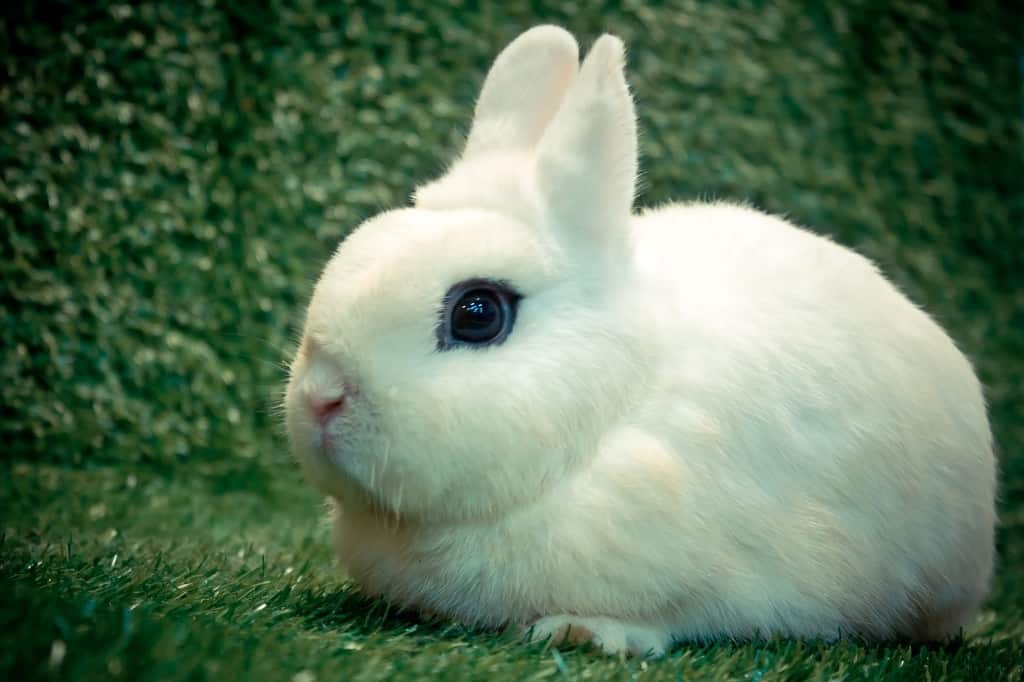
Dwarf Hotot Rabbit: A domestic rabbit breed, the dwarf Hotot rabbit is one of the cutest white animals. They are popular pets in Europe and are distinguished by their white coat.
White Nudibranch
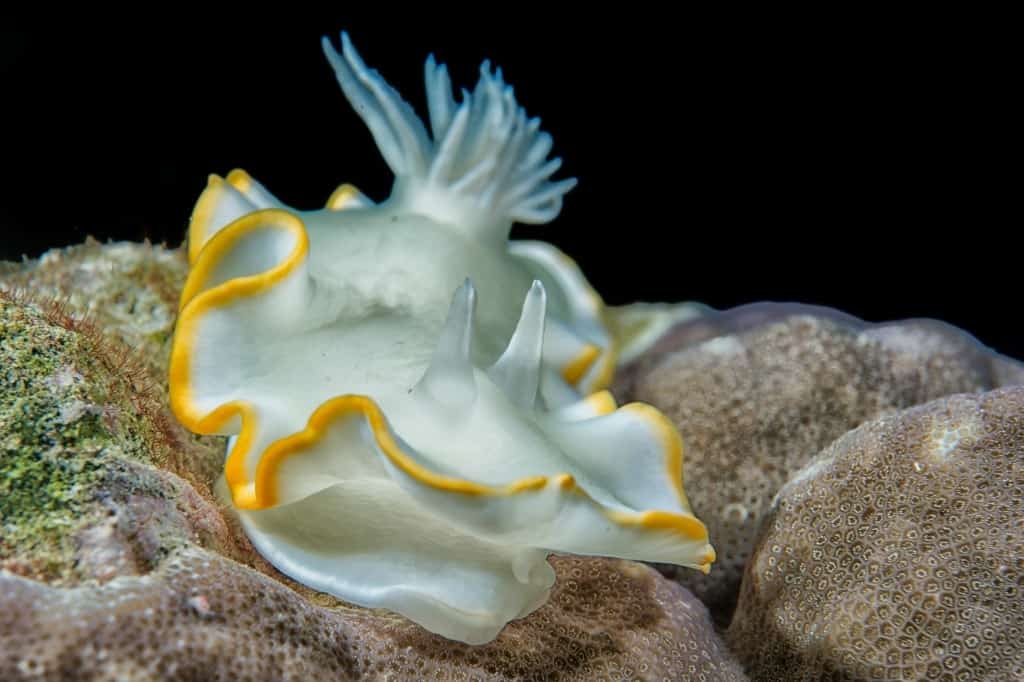
White Nudibranch: This is one of the aquatic things that are white. These strange-looking creatures can be found in any ocean. The white nudibranch is a dorid nudibranch, which is a type of sea slug.
These fatty marine mollusks are well known for their coloring.
Emperor Penguin
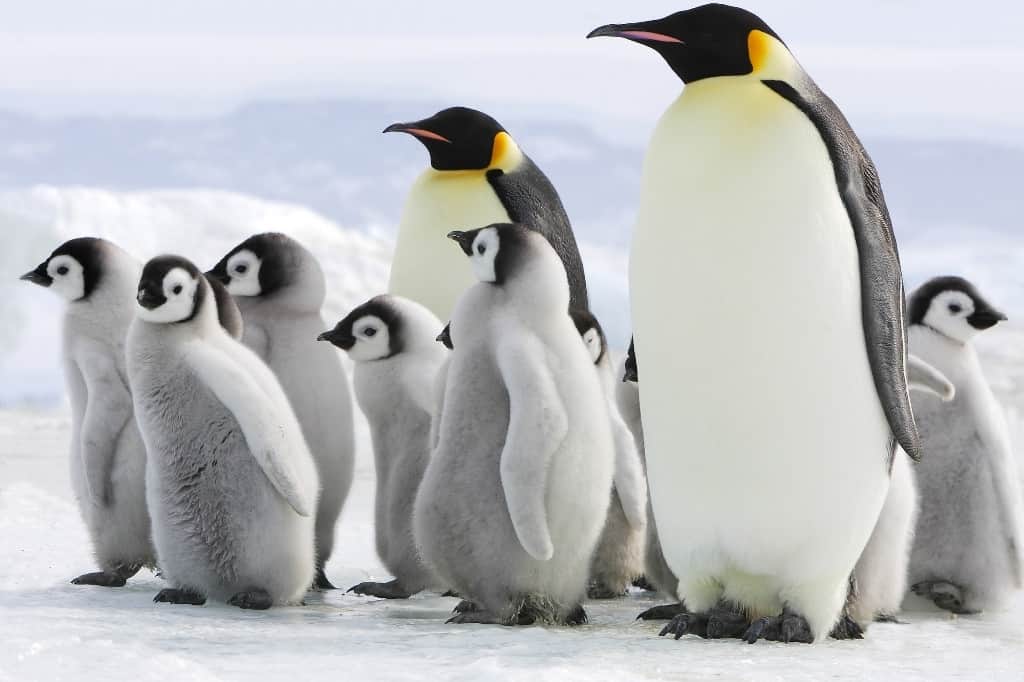
Emperor Penguin: An aquatic, flightless bird, the Emperor penguin is one of the cutest black and white things.
Penguins are black and white, which allows them to blend in with their surroundings and avoid predators. This penguin species is one of the cutest things that are white and black.
White Pomeranian
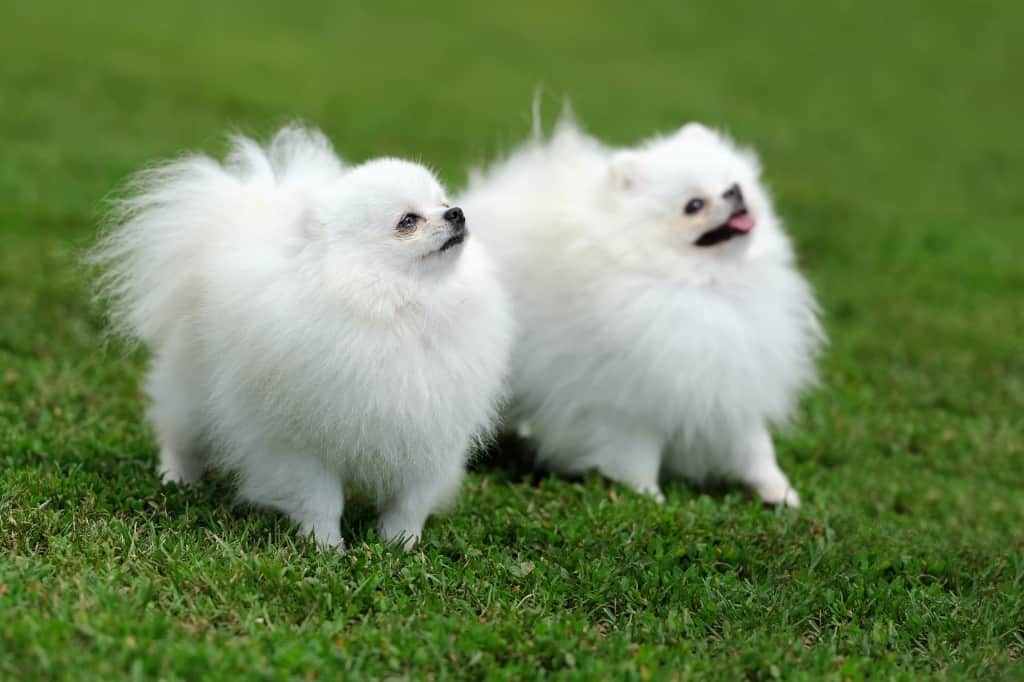
White Pomeranian: These dogs are among the things that are white and cute. An affectionate breed of small dogs of the Spitz type, the white Pomeranian is one of the cutest things that are naturally white.
As a result, the price of a white Pomeranian ranges from $3,000 to $9,000. The dominant Chinchilla gene is responsible for the white color of the white Pomeranian.
The name is derived from the German region of Pomerania in the northeast.
White Sheep
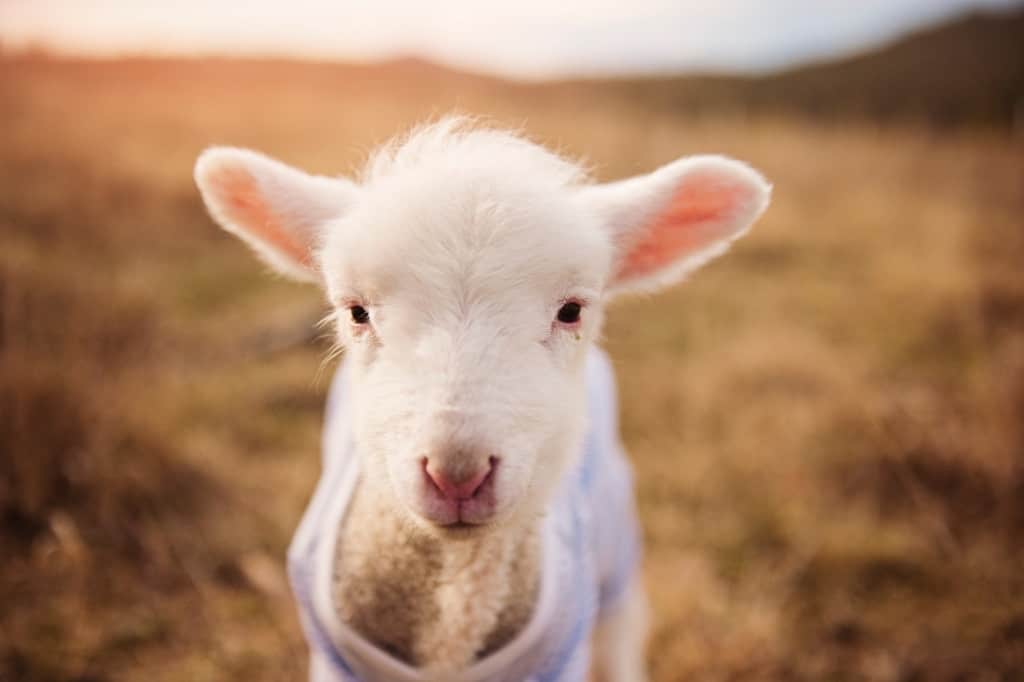
White Sheep: The sheep is a ruminating mammal that has been domesticated. They provide us with the famous sheep’s milk, used to make dairy products such as the popular sheep cheeses fetta and ricotta.
Sheep can be white if one or both parents carry the white pattern gene. Being a white sheep is also an idiom that refers to being a conformist.
White Horse
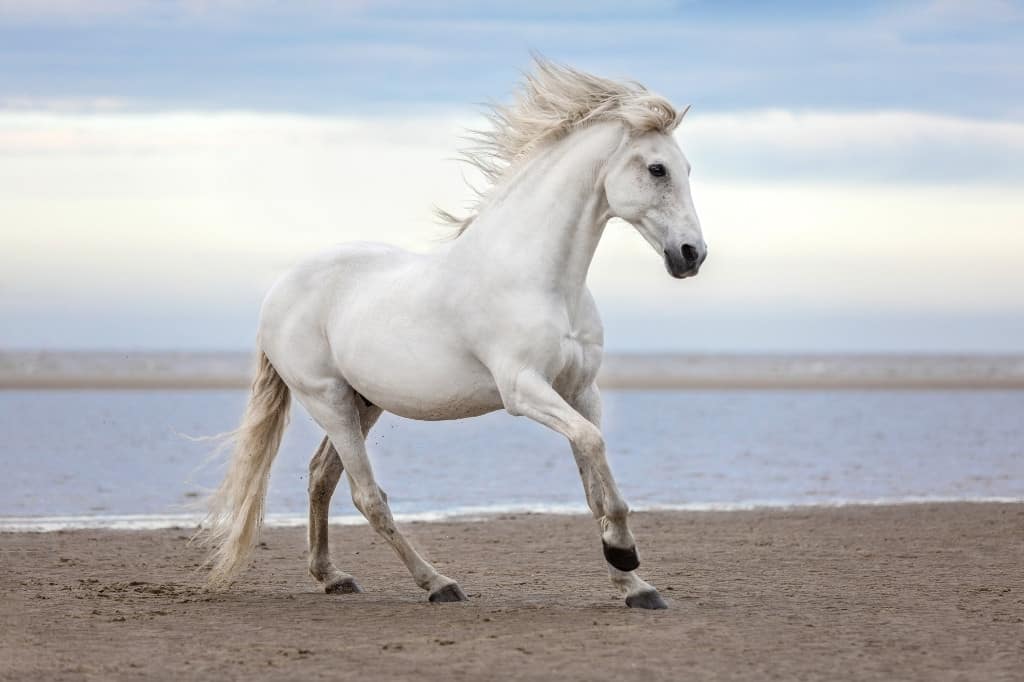
White Horse: Horses may be white due to vitiligo, a color abnormality characterized by the absence of melanocytes or pigment cells.
Whitefish
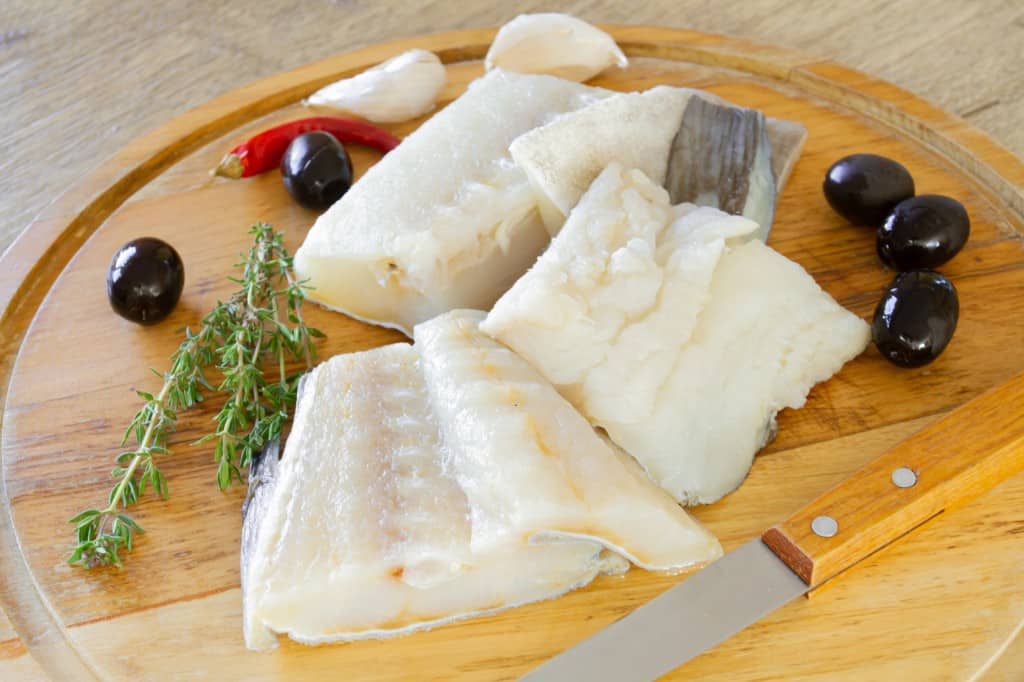
Whitefish: When we think of whitefish, we think of species like cod, bass, tilapia, and haddock.
Whitefish are usually inactive for their entire lives. Their color is related to a protein called myoglobin, which stores oxygen for the muscles and acts as a pigment.
Things That Are White in Nature
As a result, white is a rare color in nature, most commonly seen in wildlife. Furthermore, certain color abnormalities known as skin conditions, such as albinism and vitiligo, affect the body’s pigmentation.
However, we have compiled a comprehensive list of naturally white things, including animals, birds, gems, and foods.
What are your favorite naturally white things?

